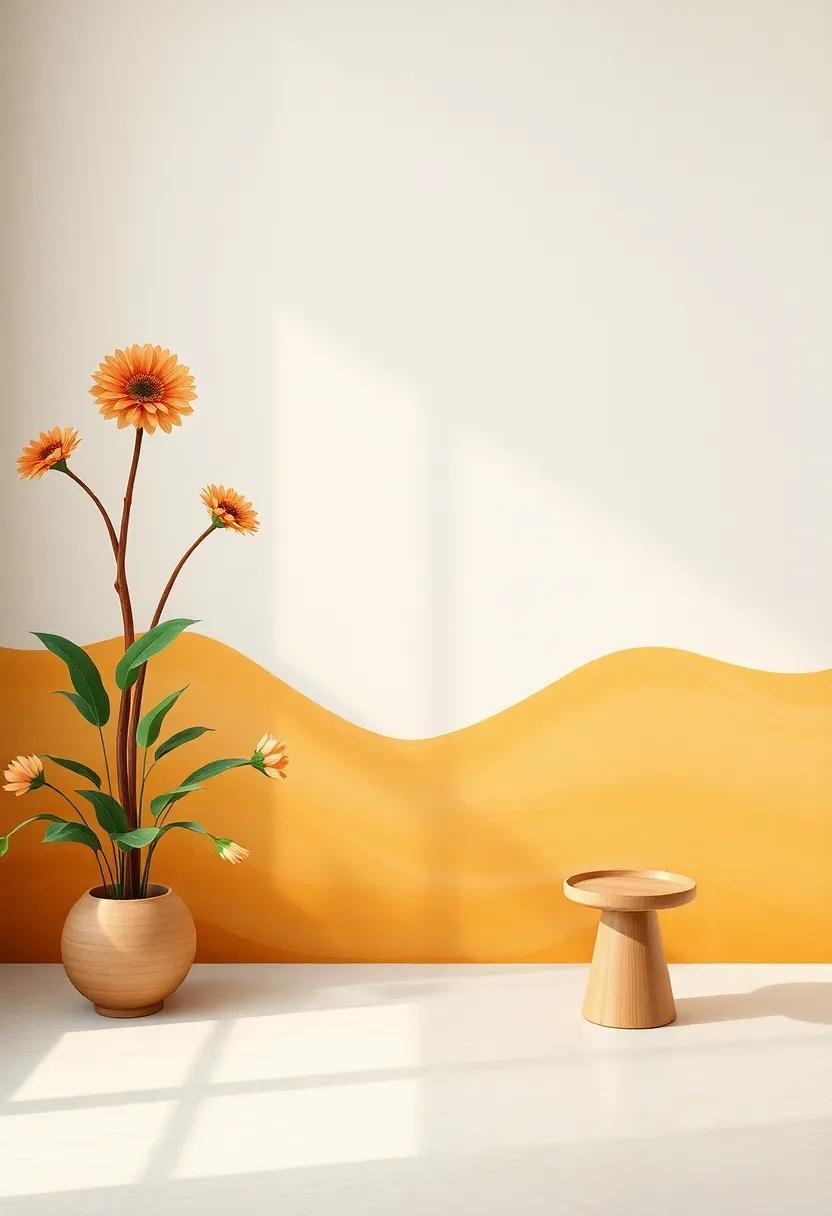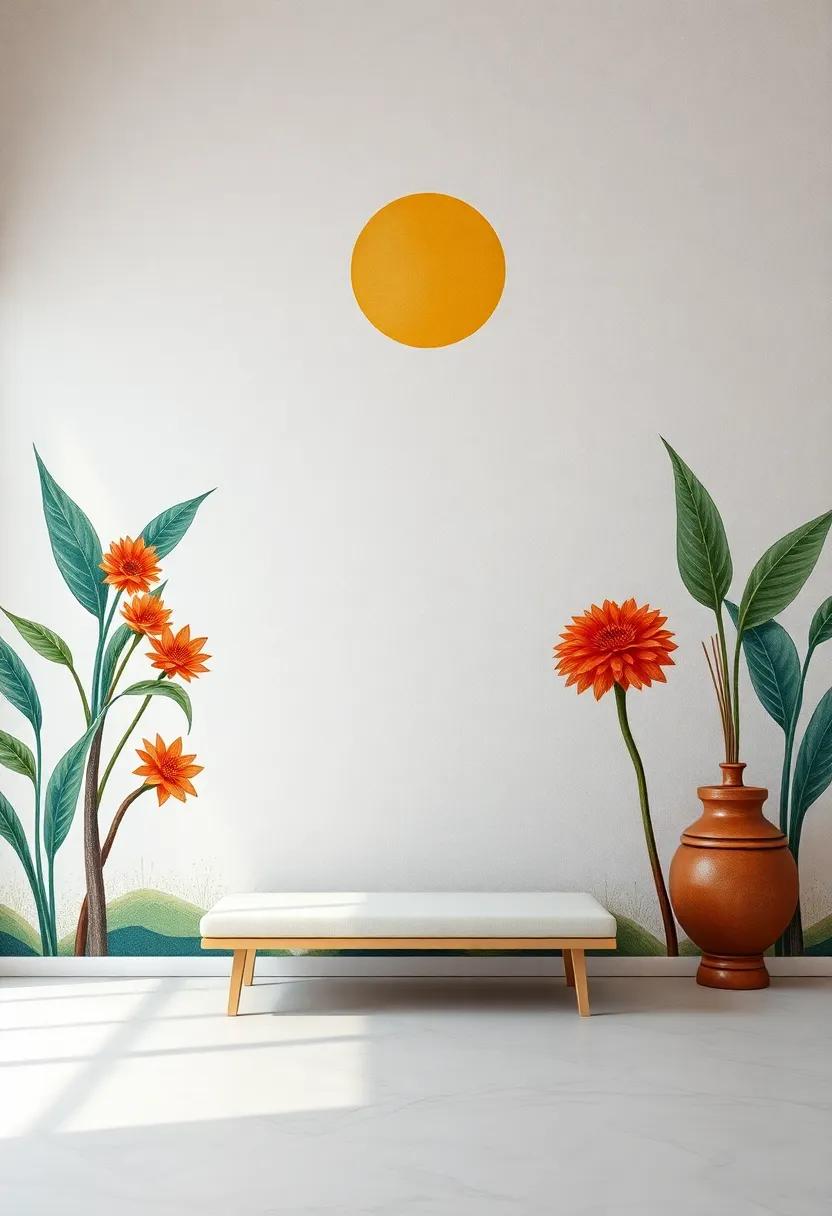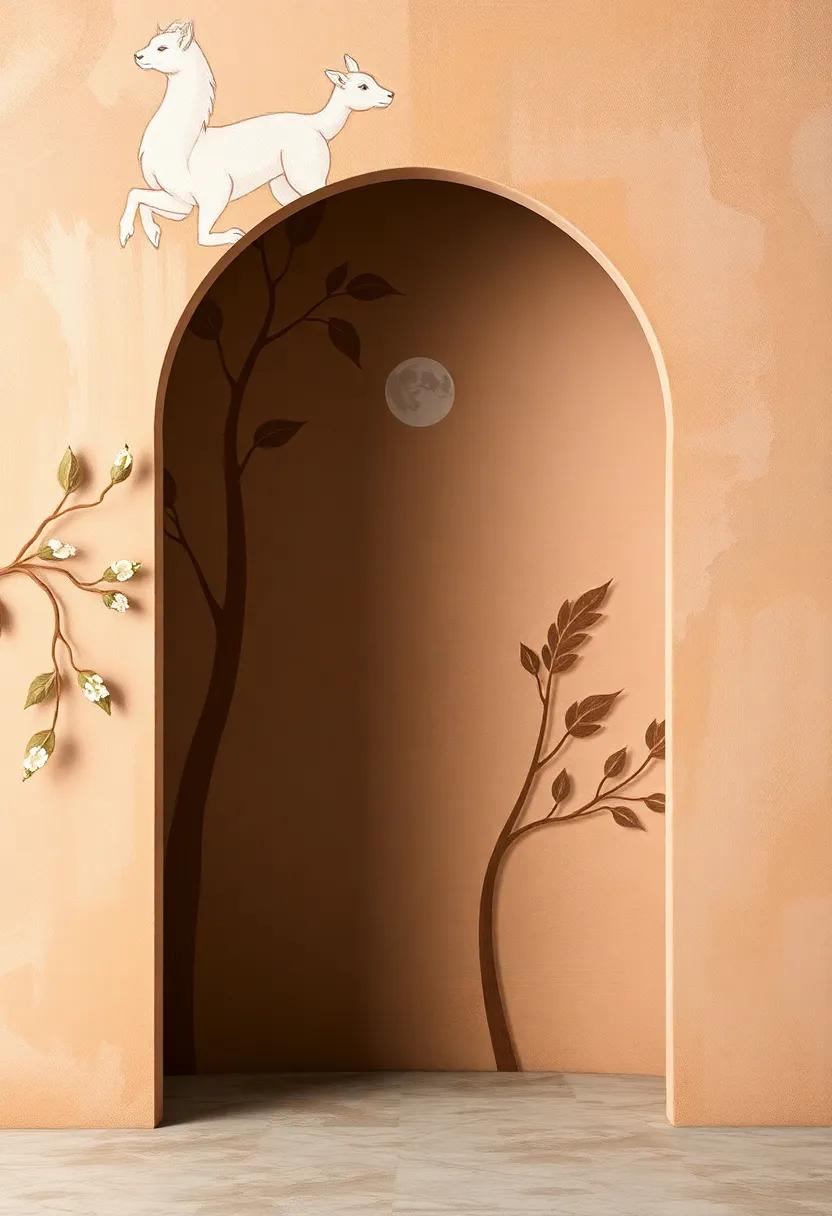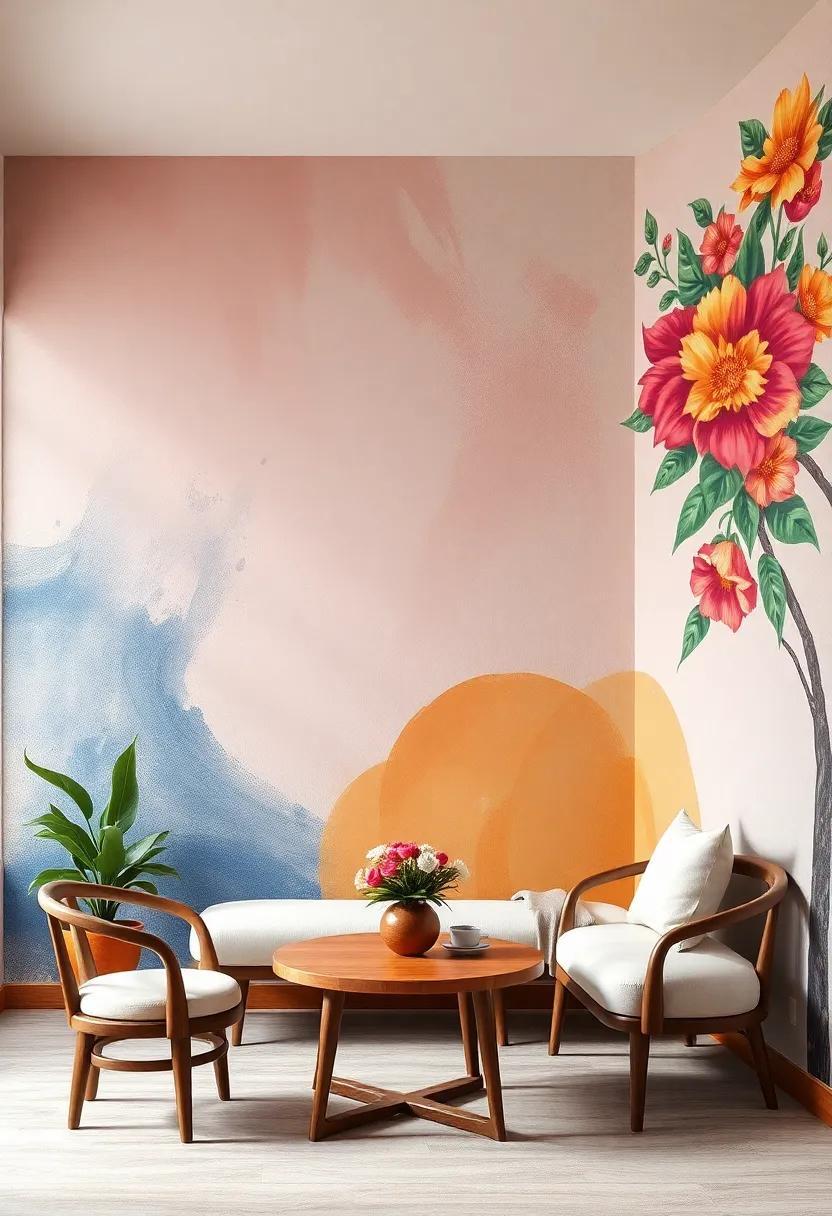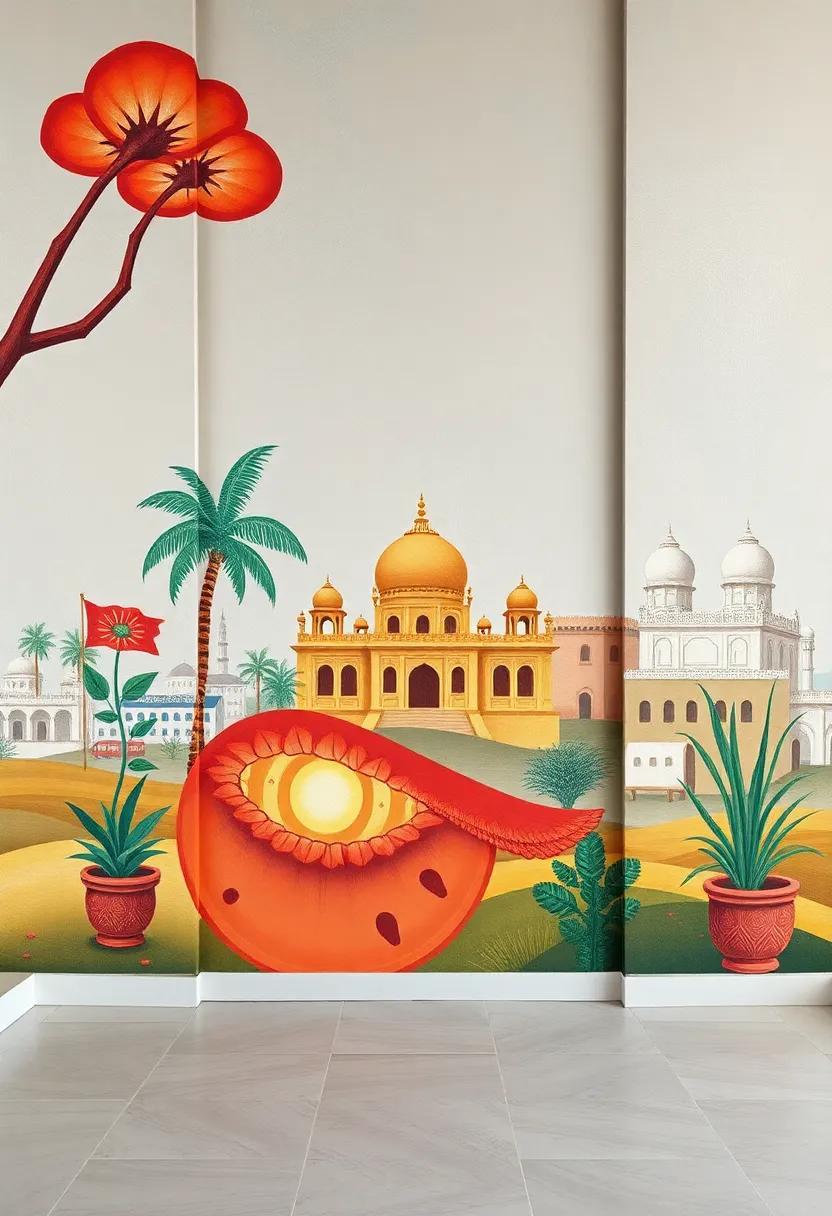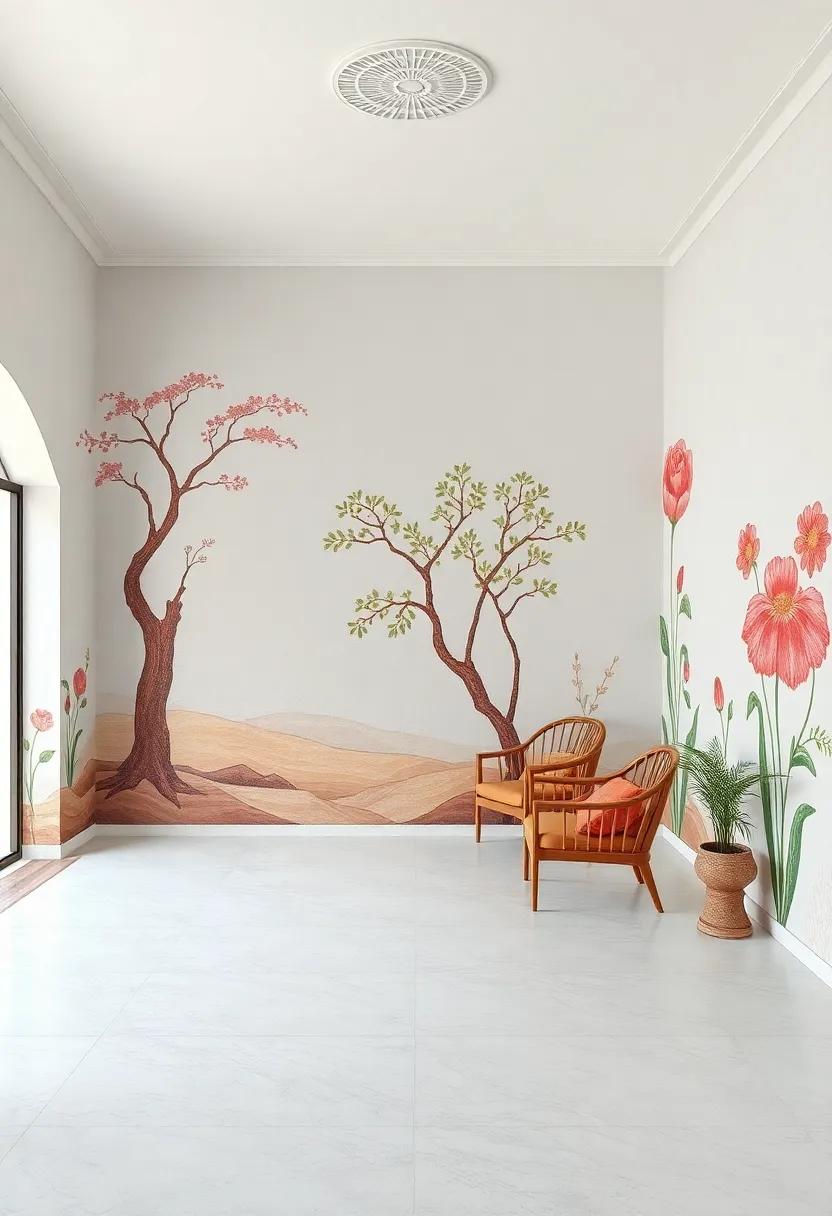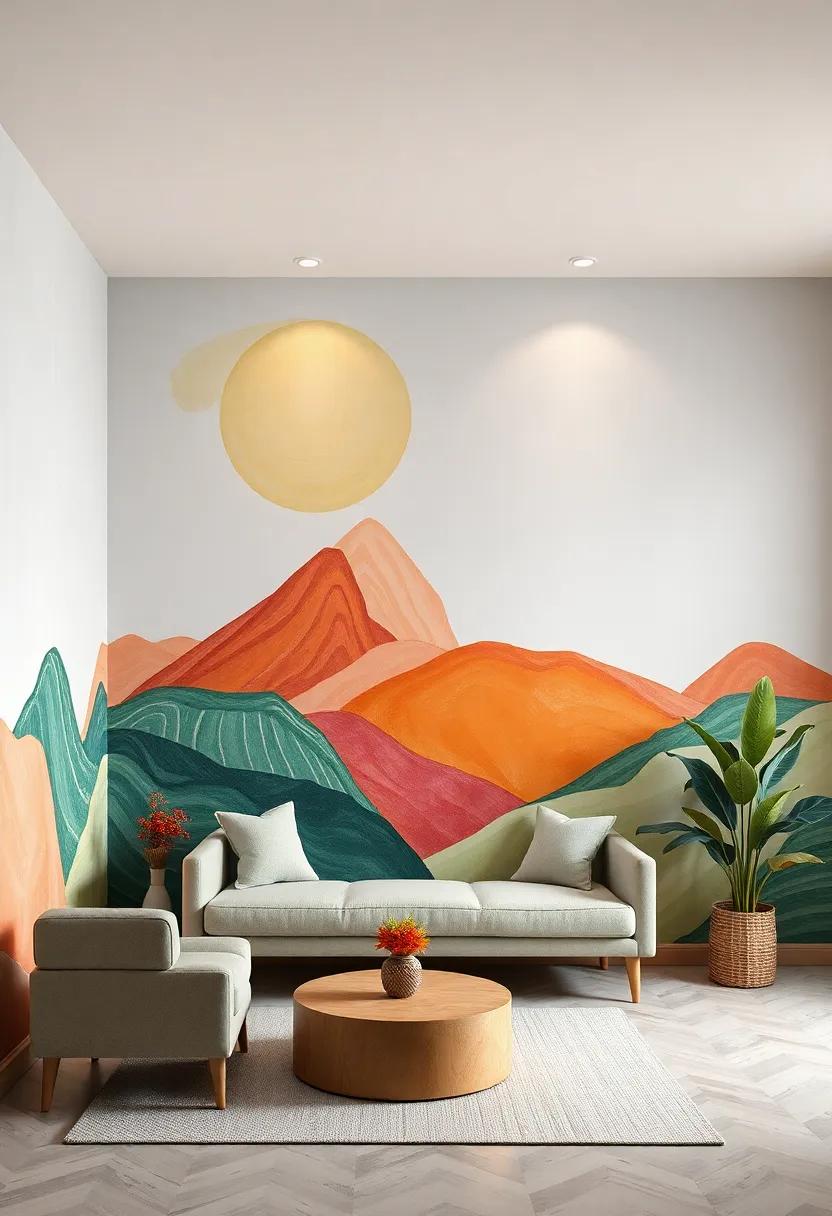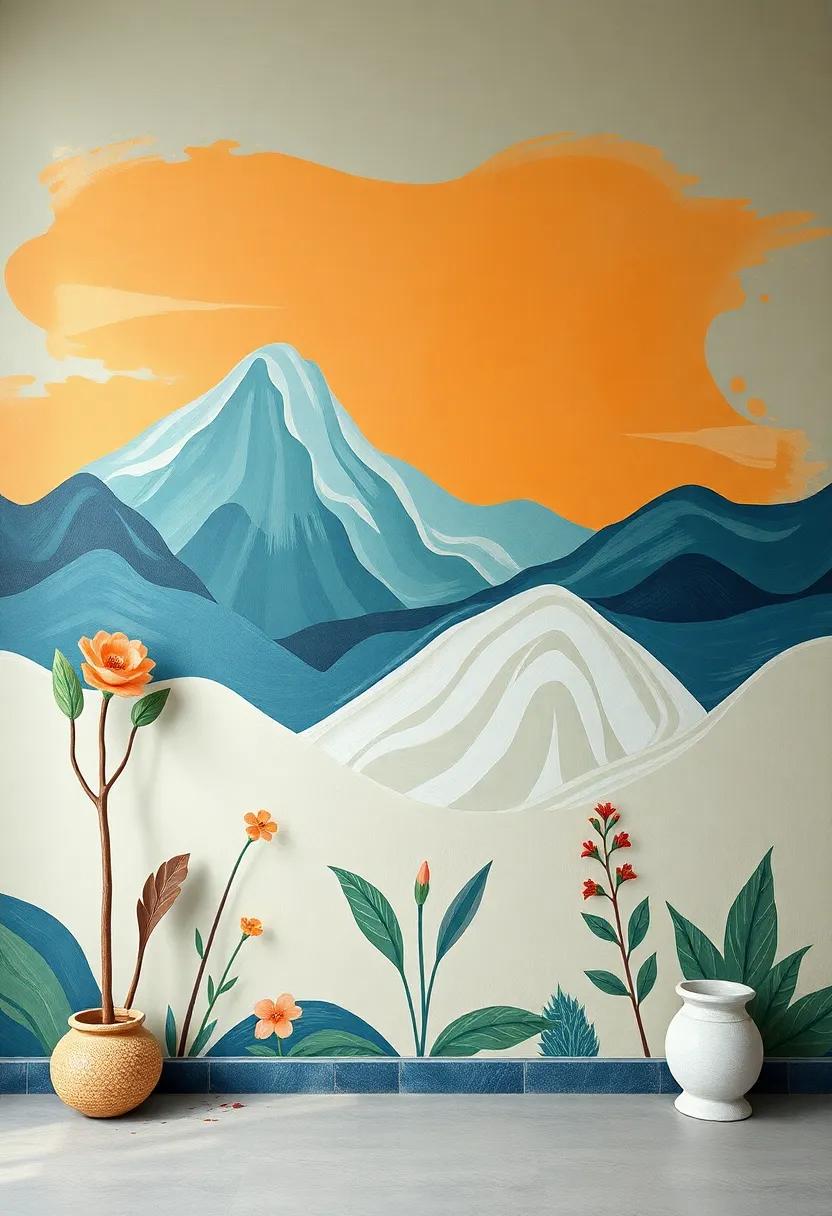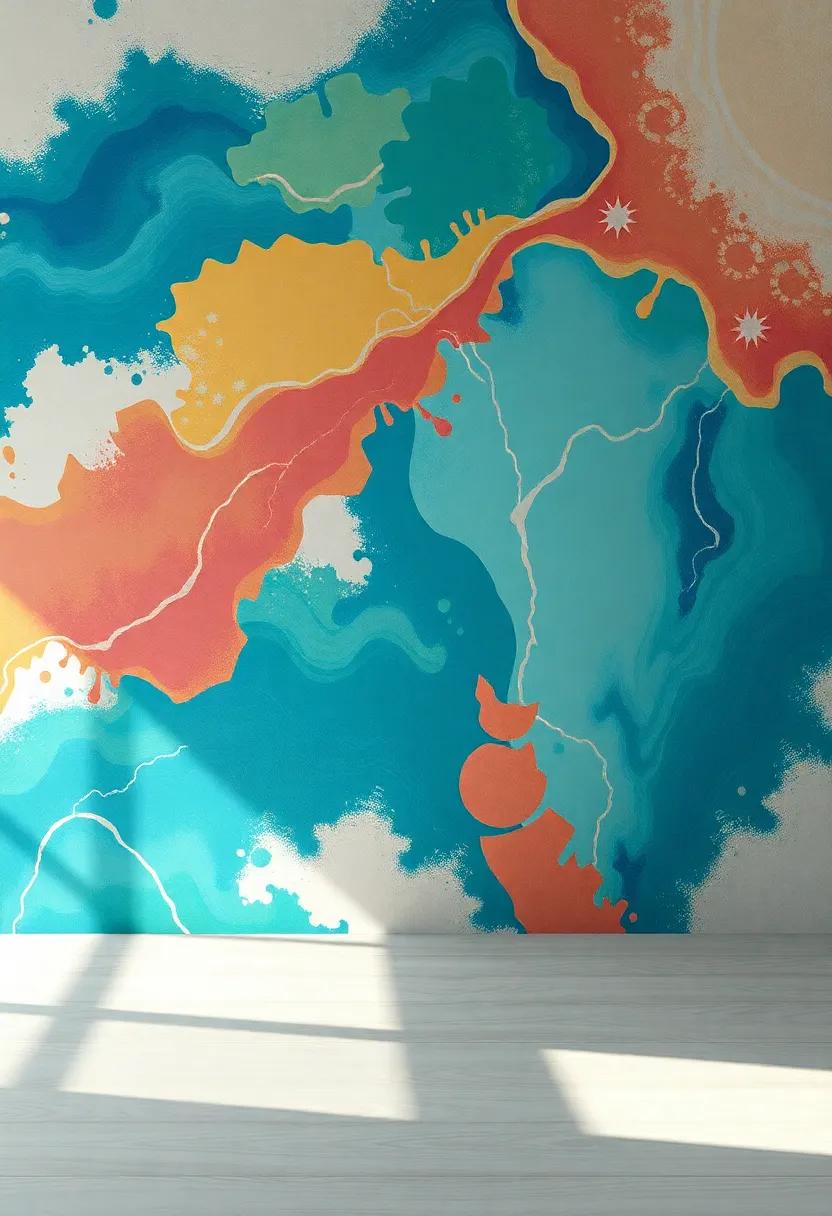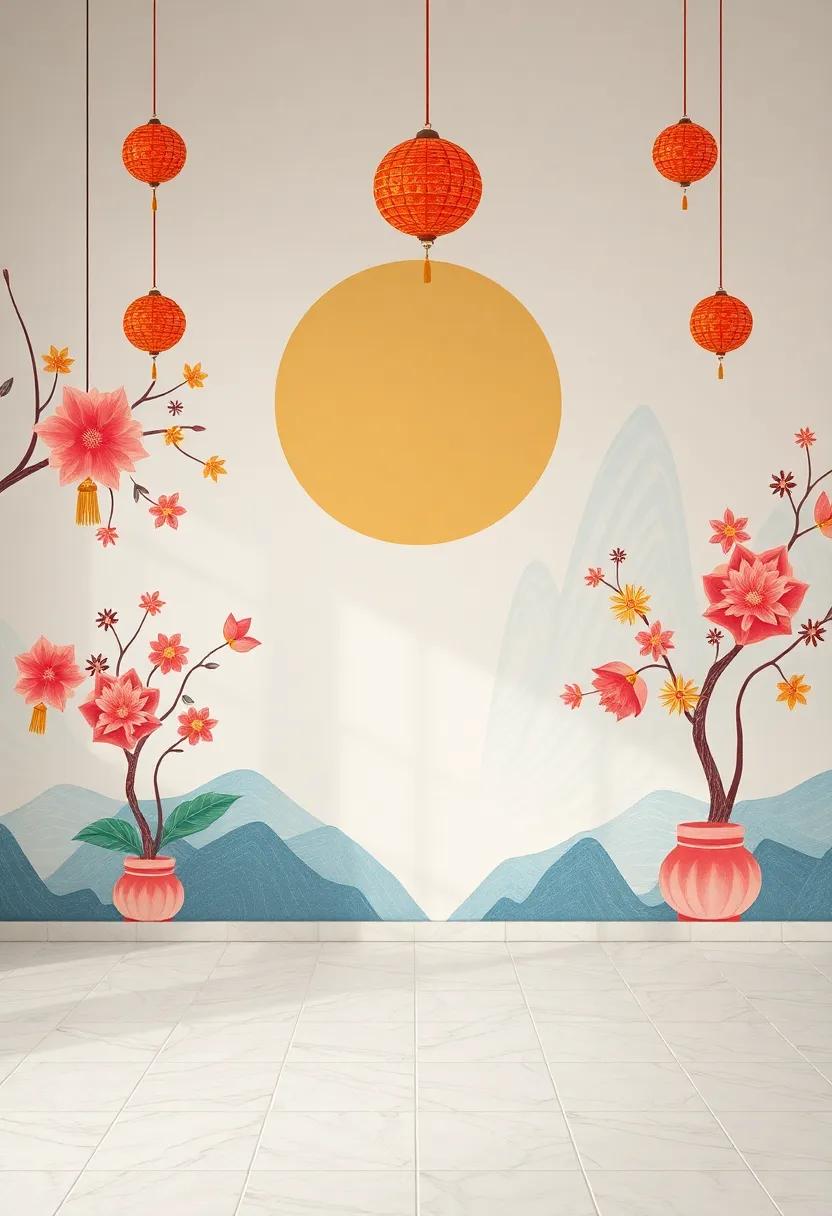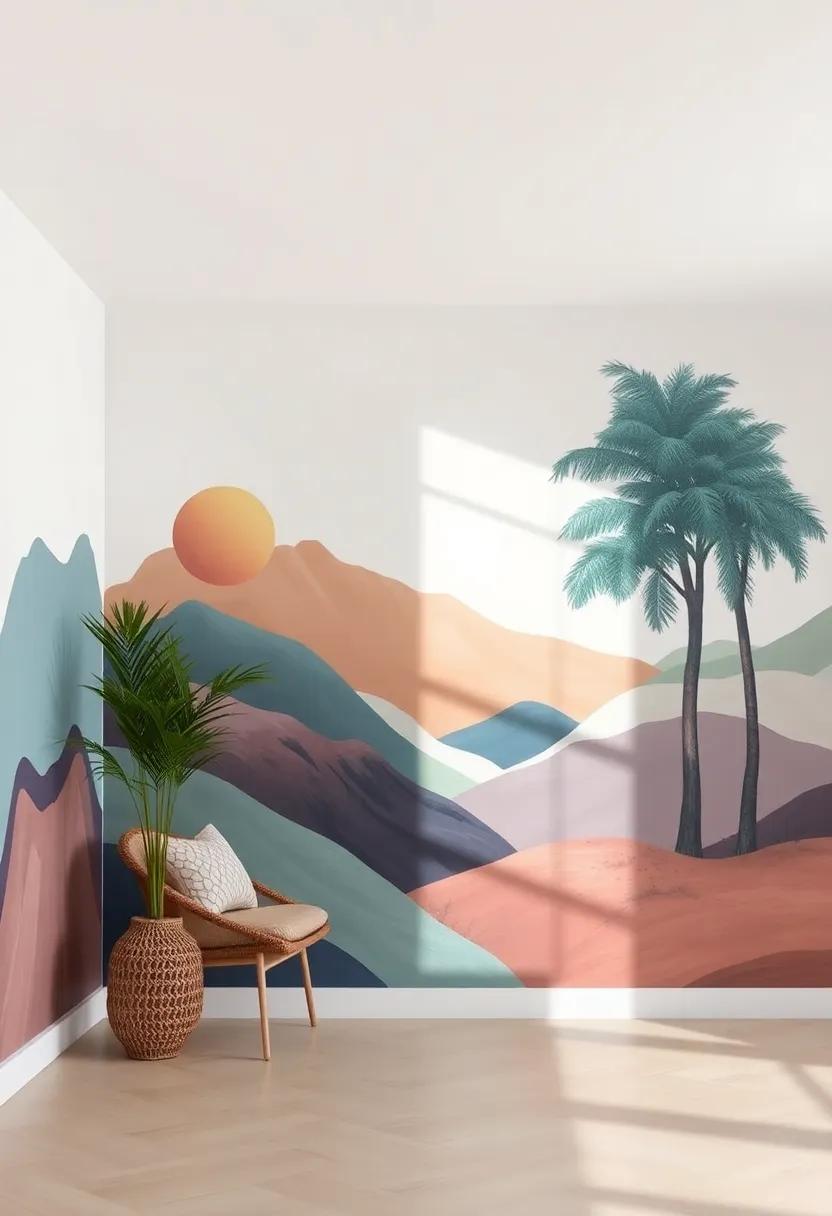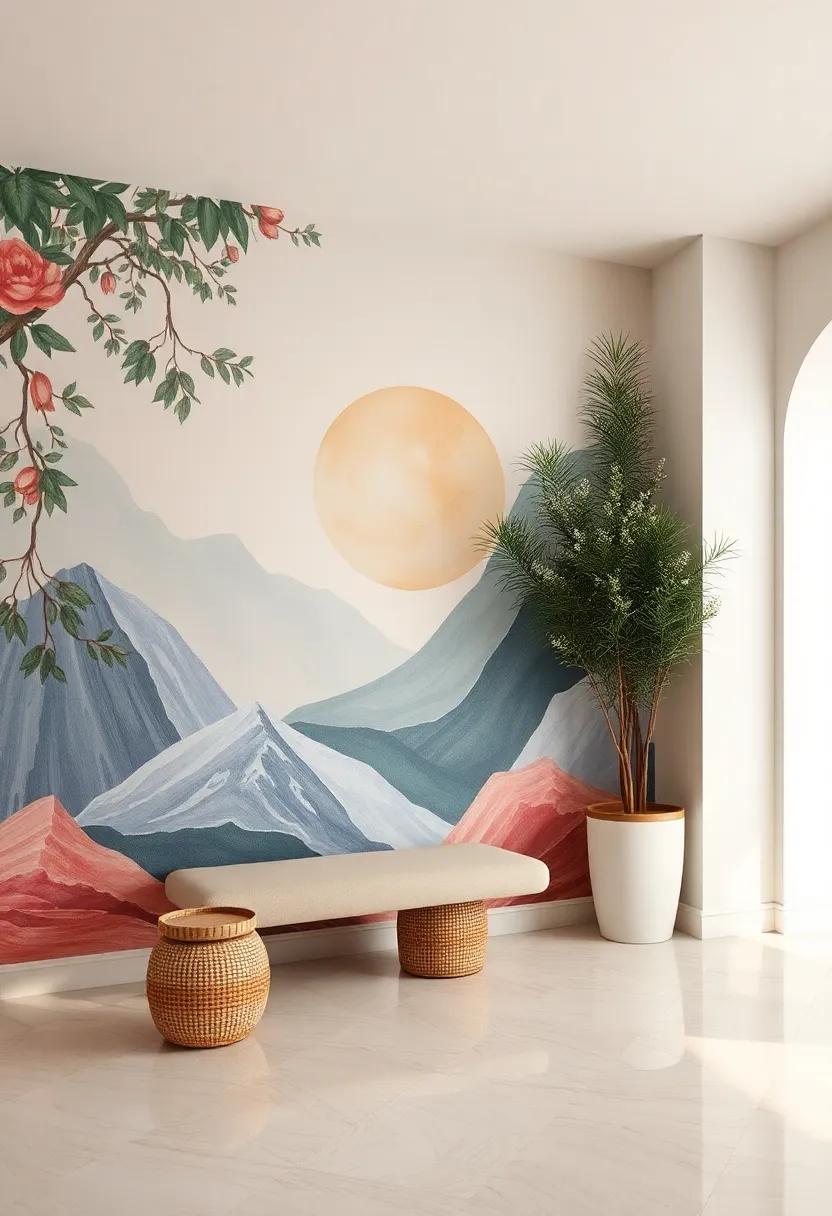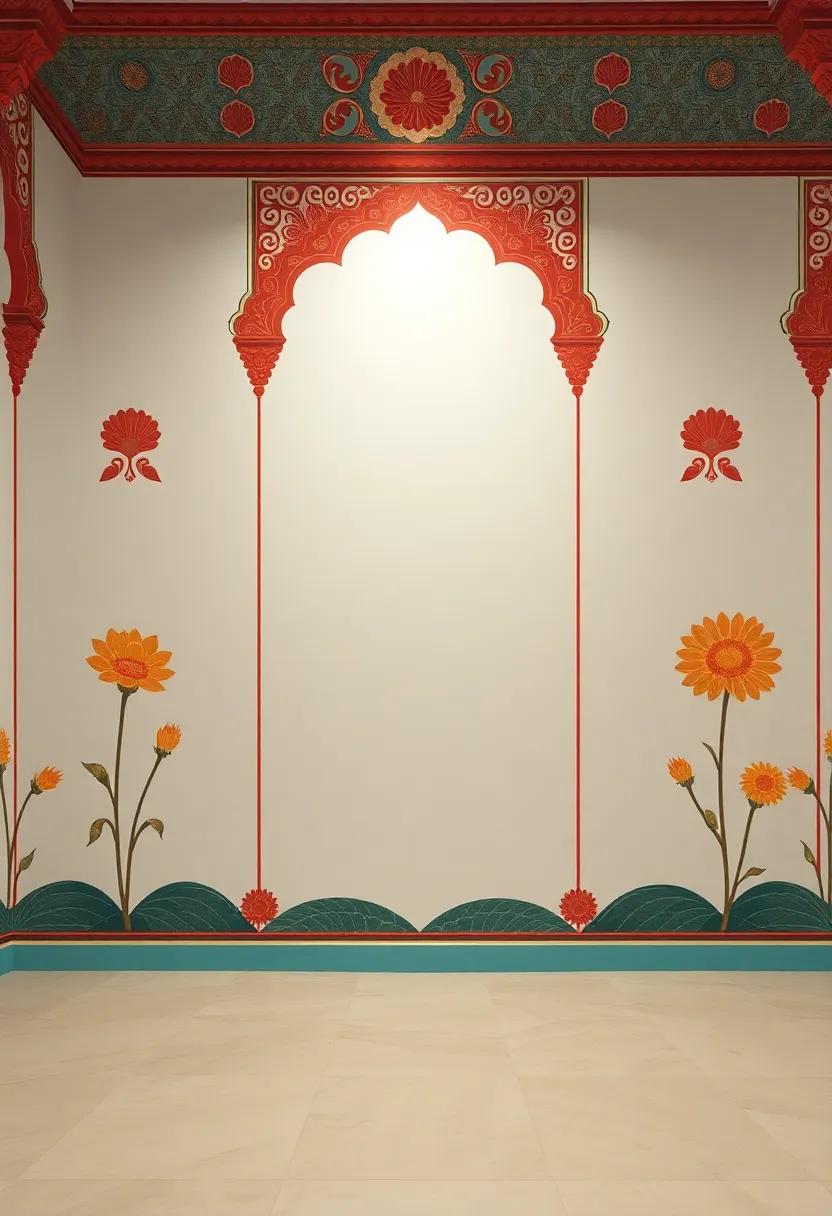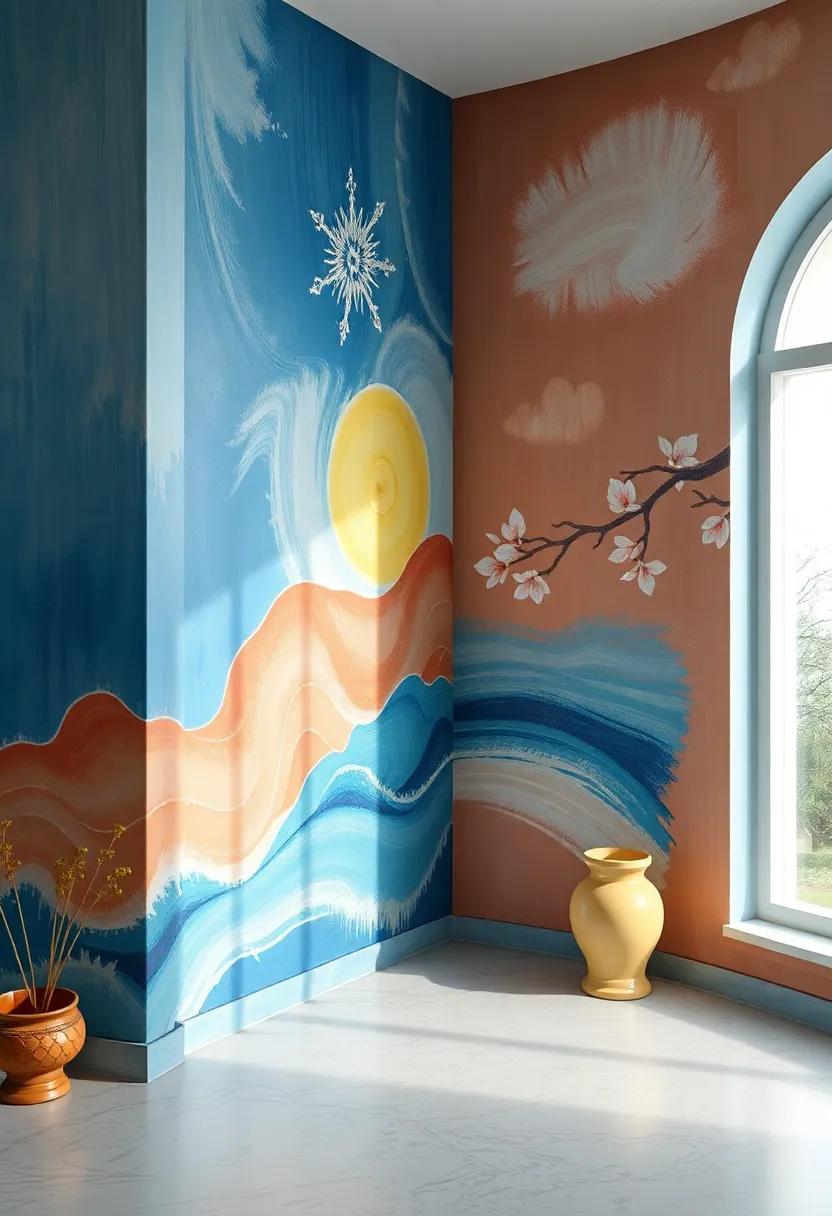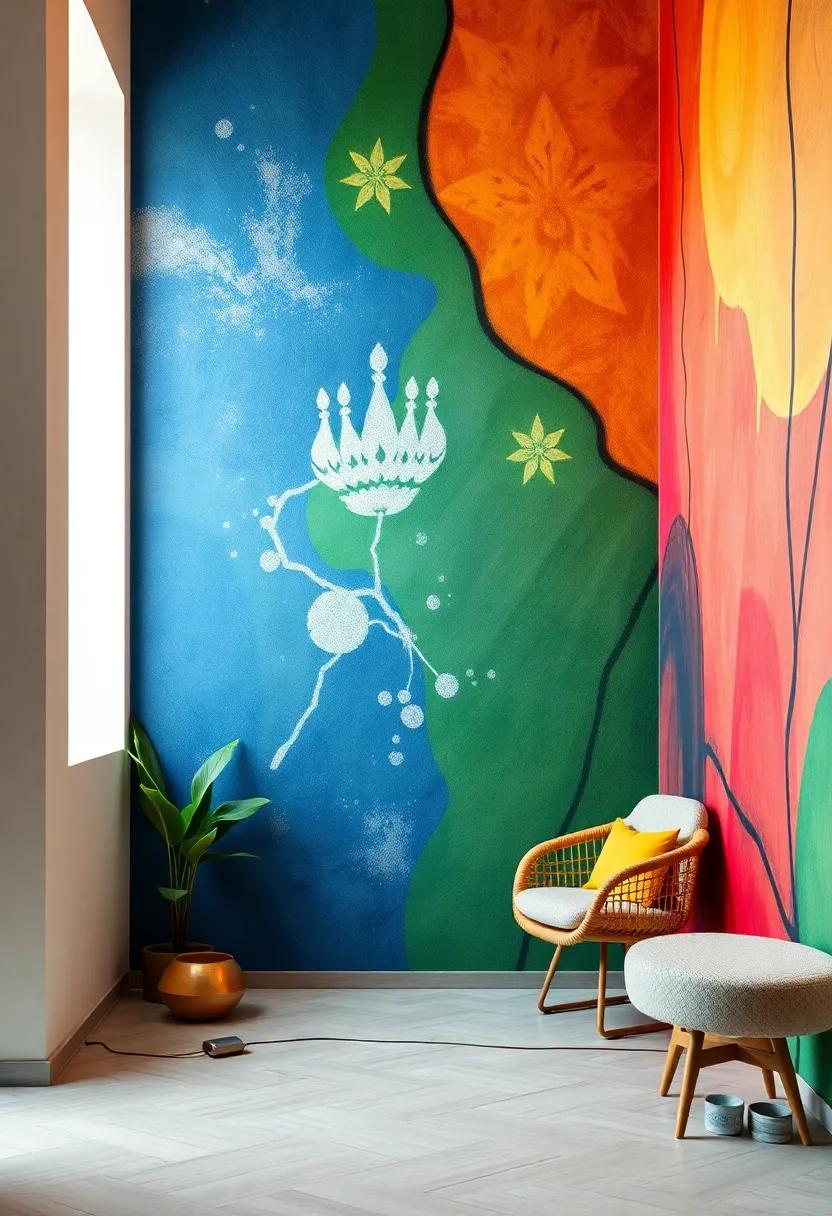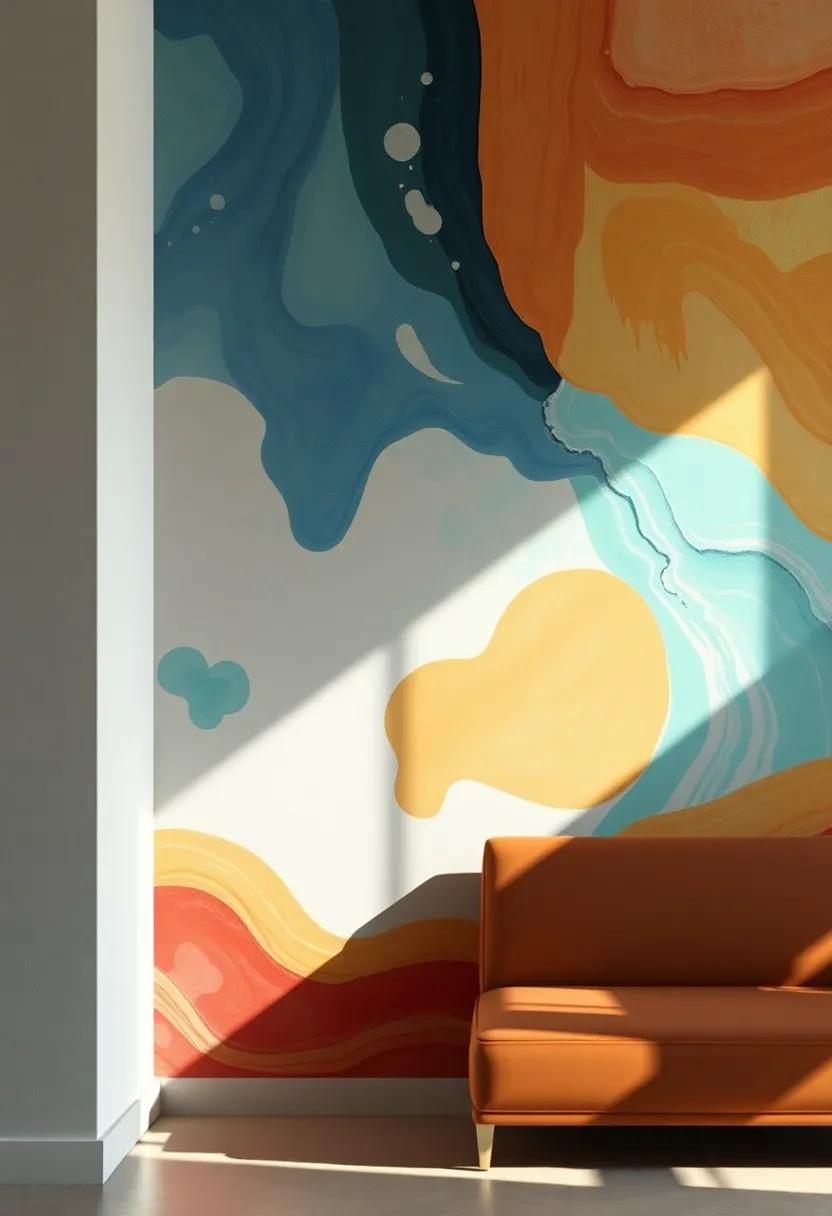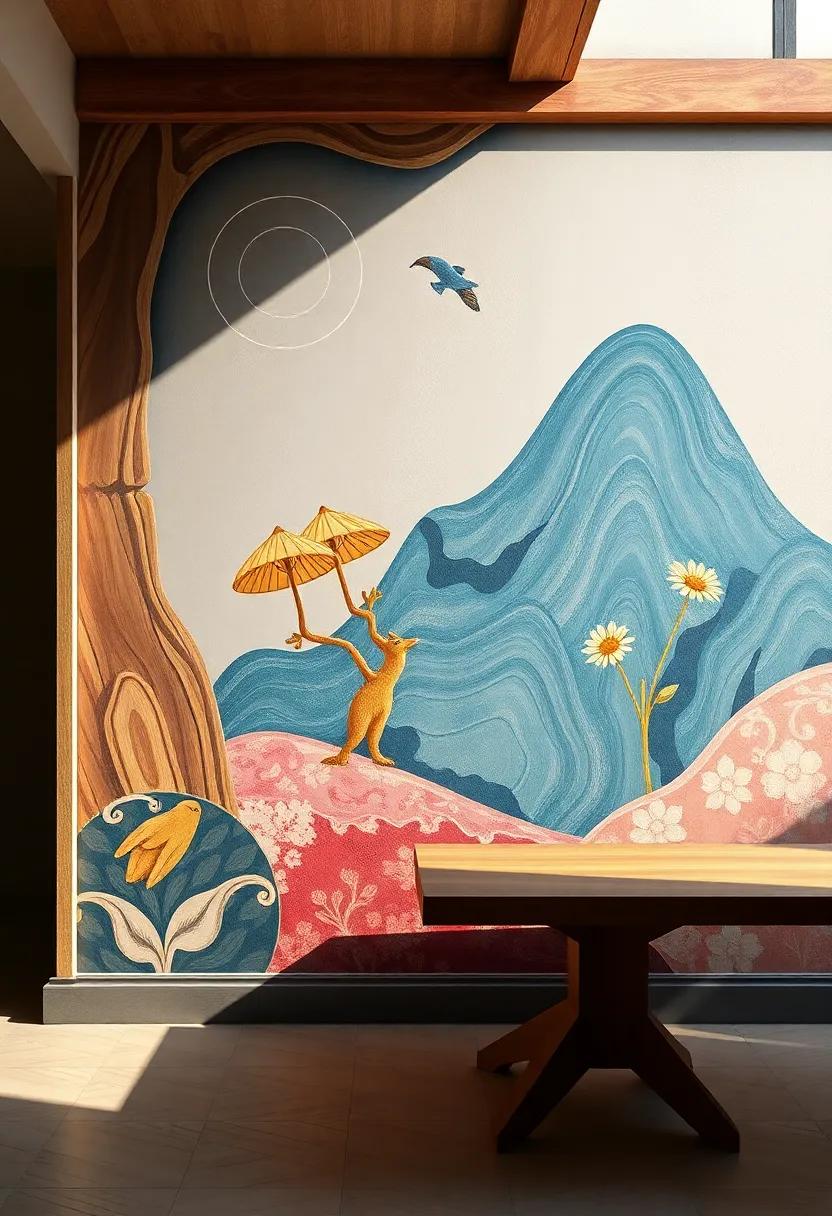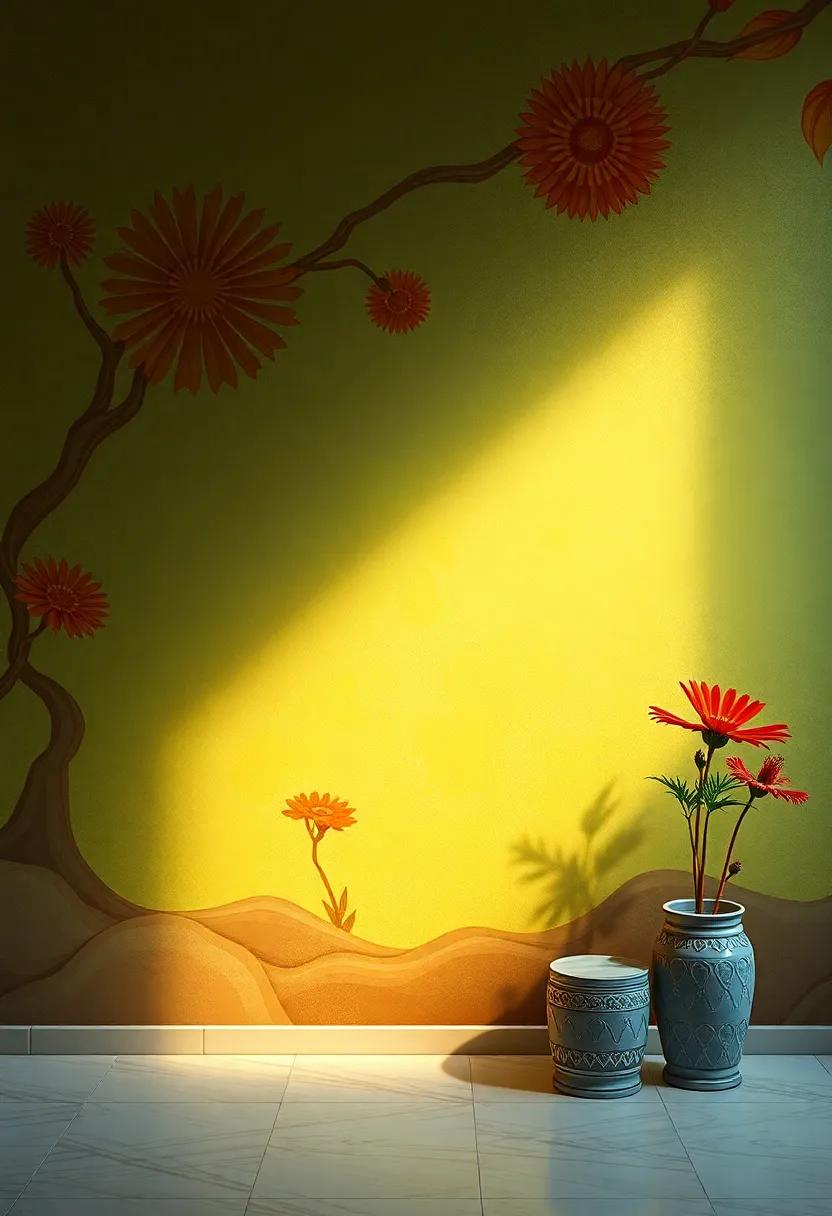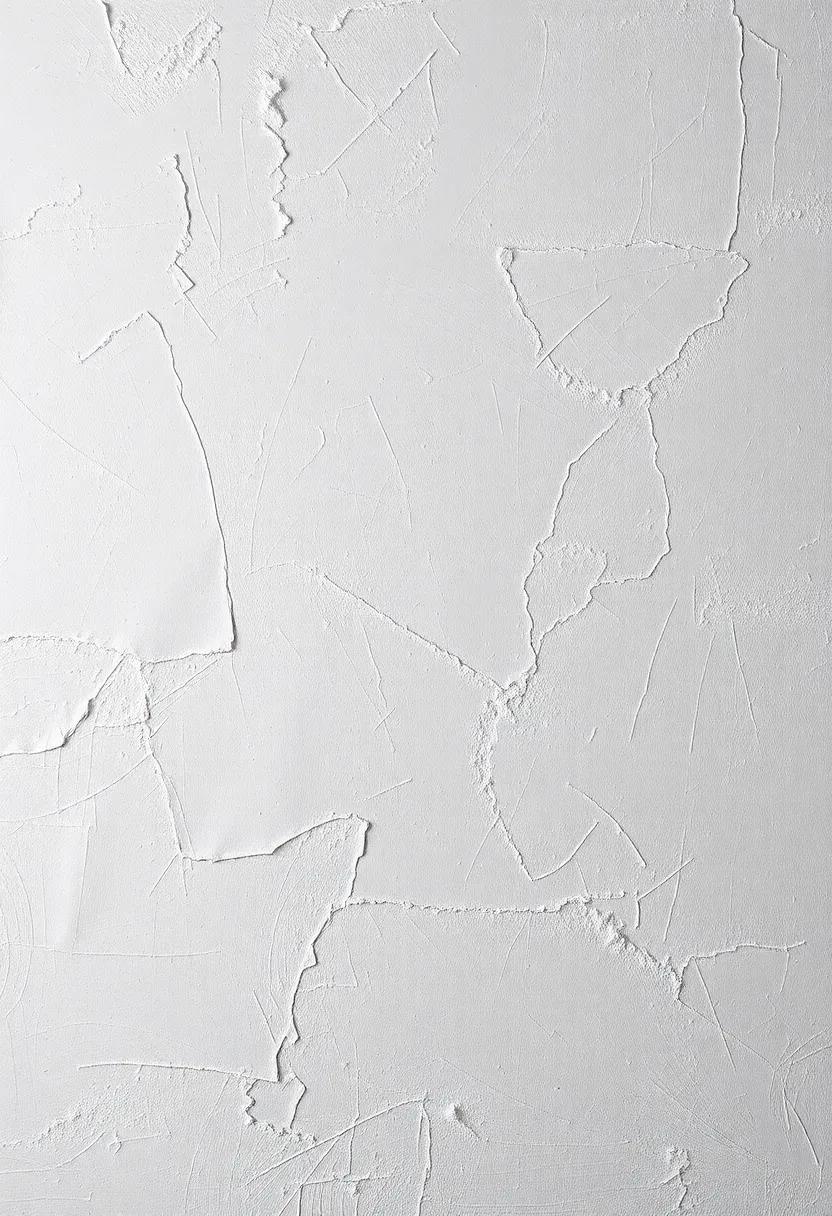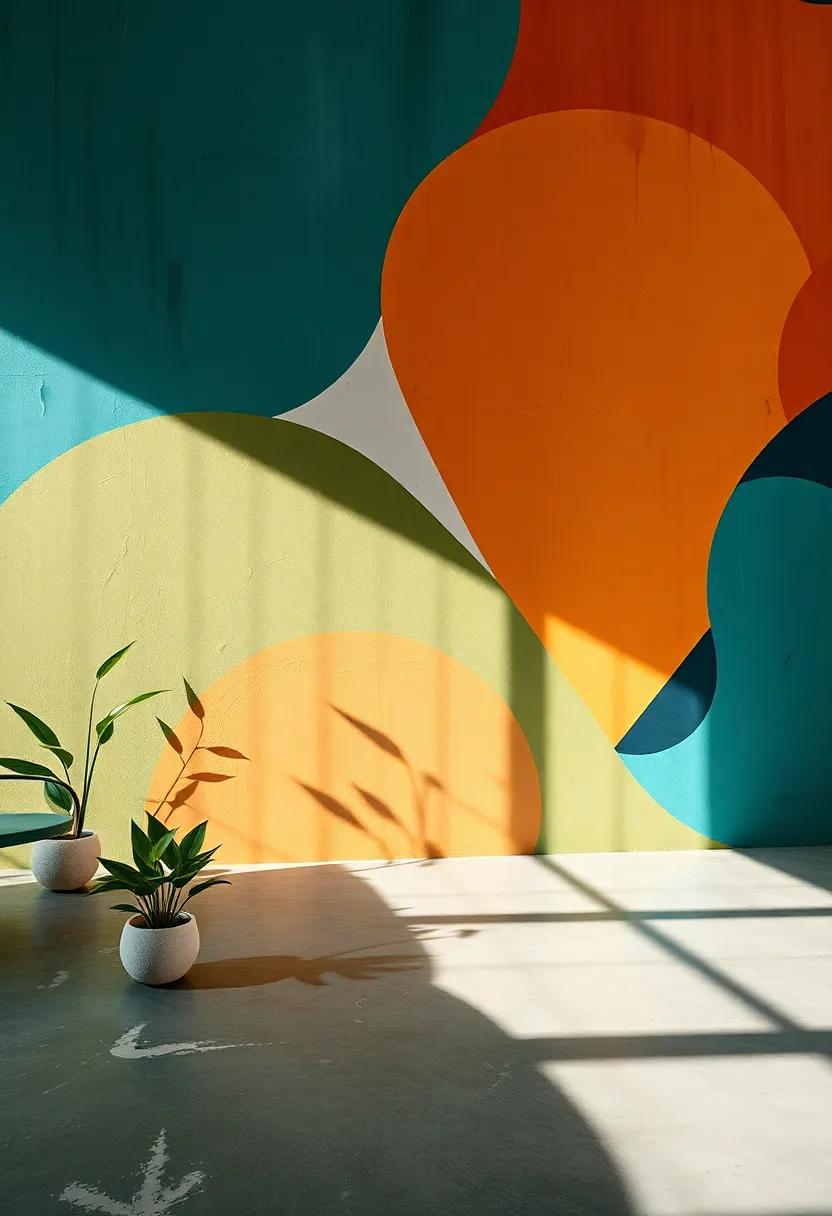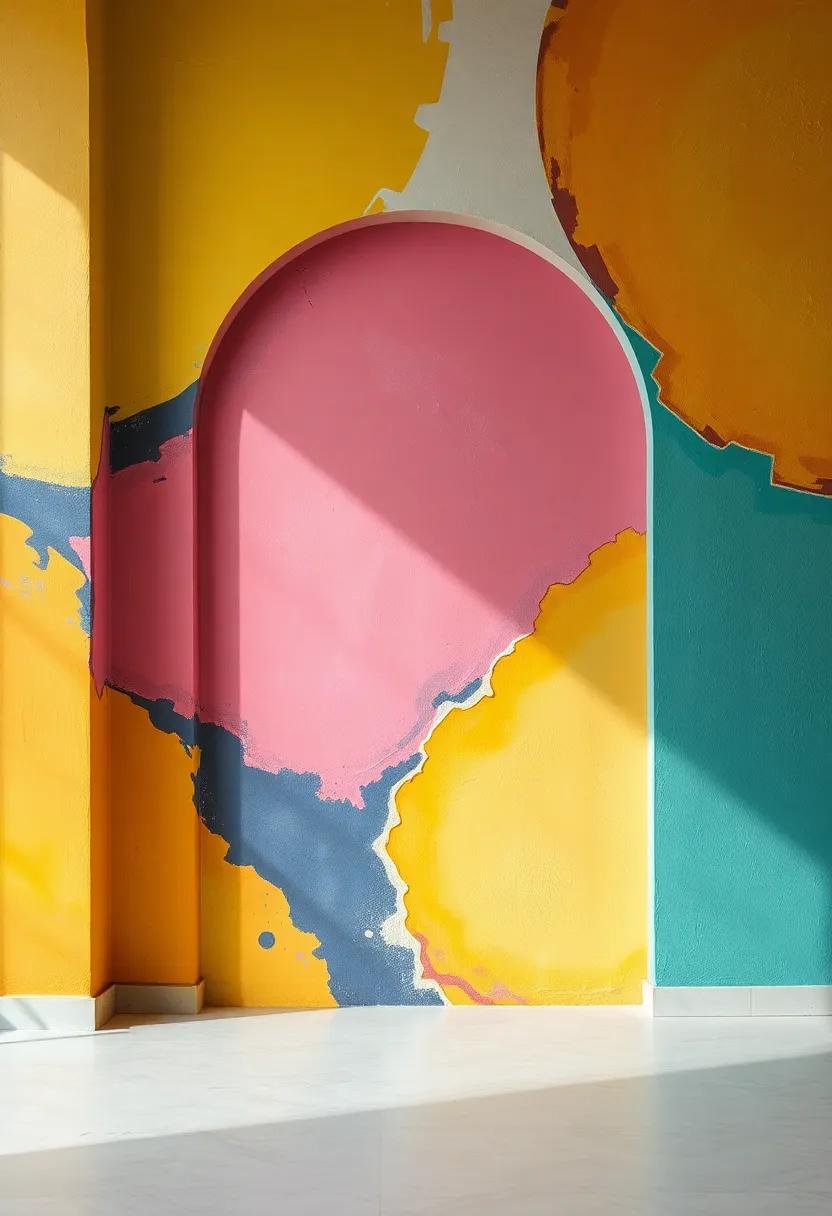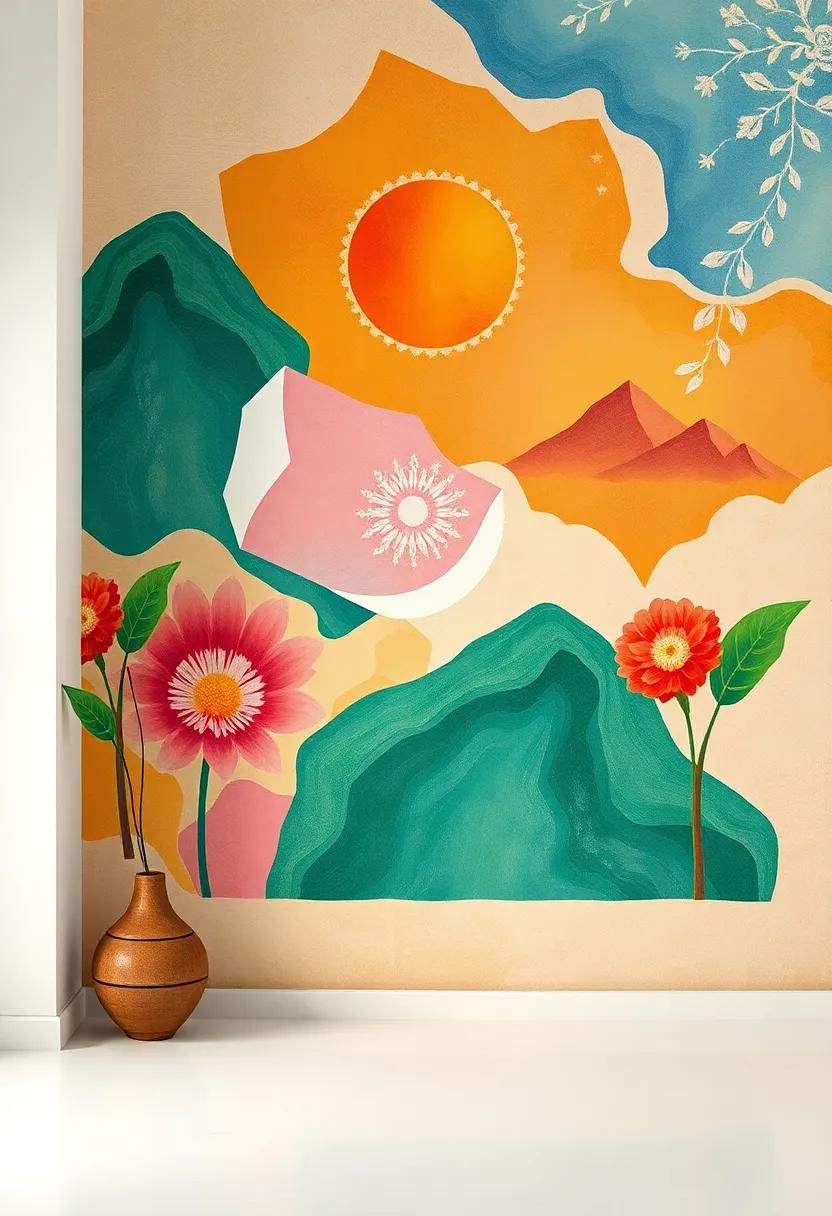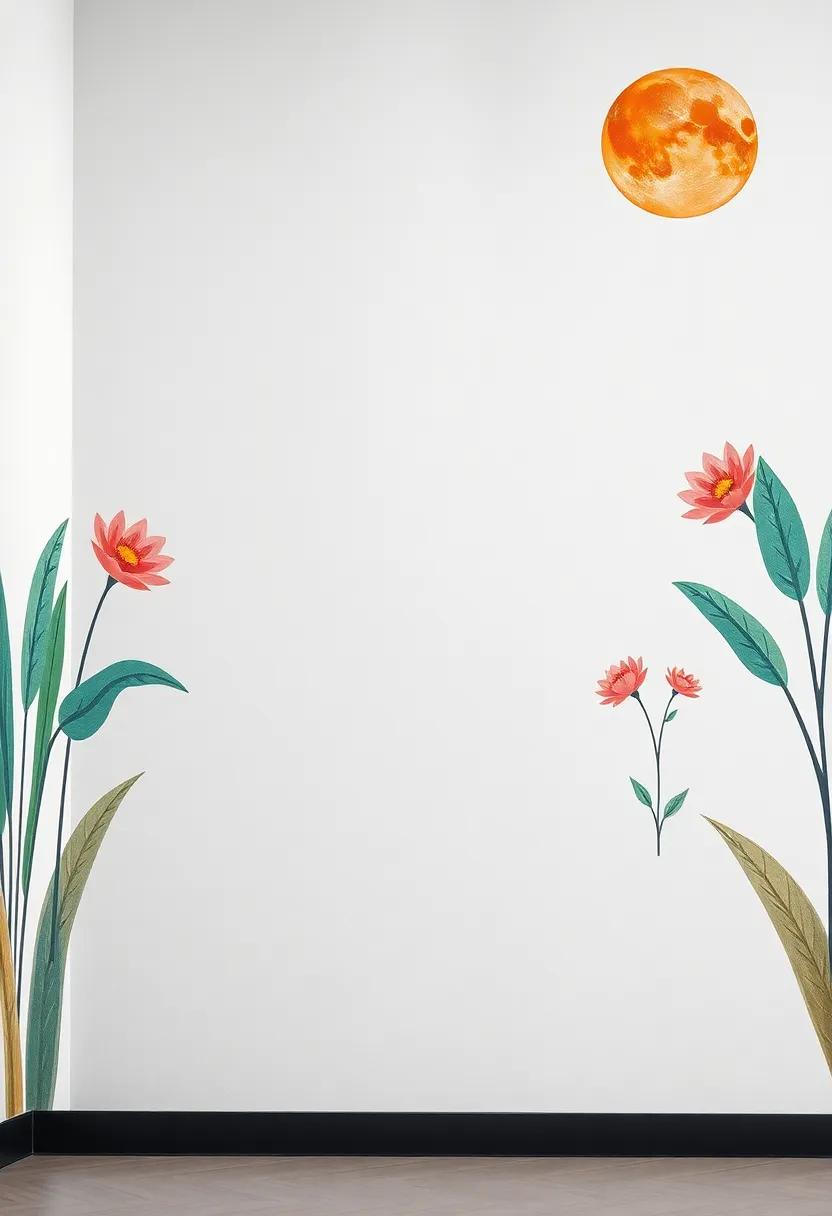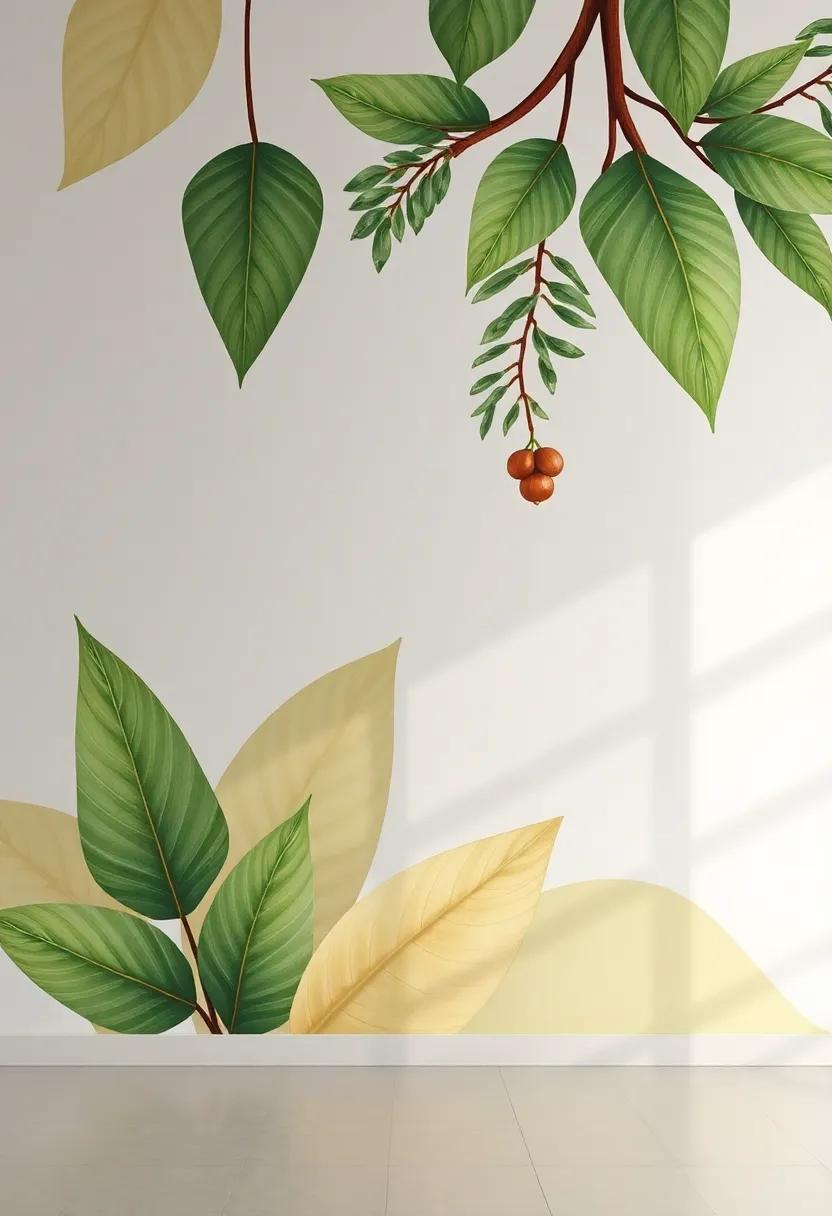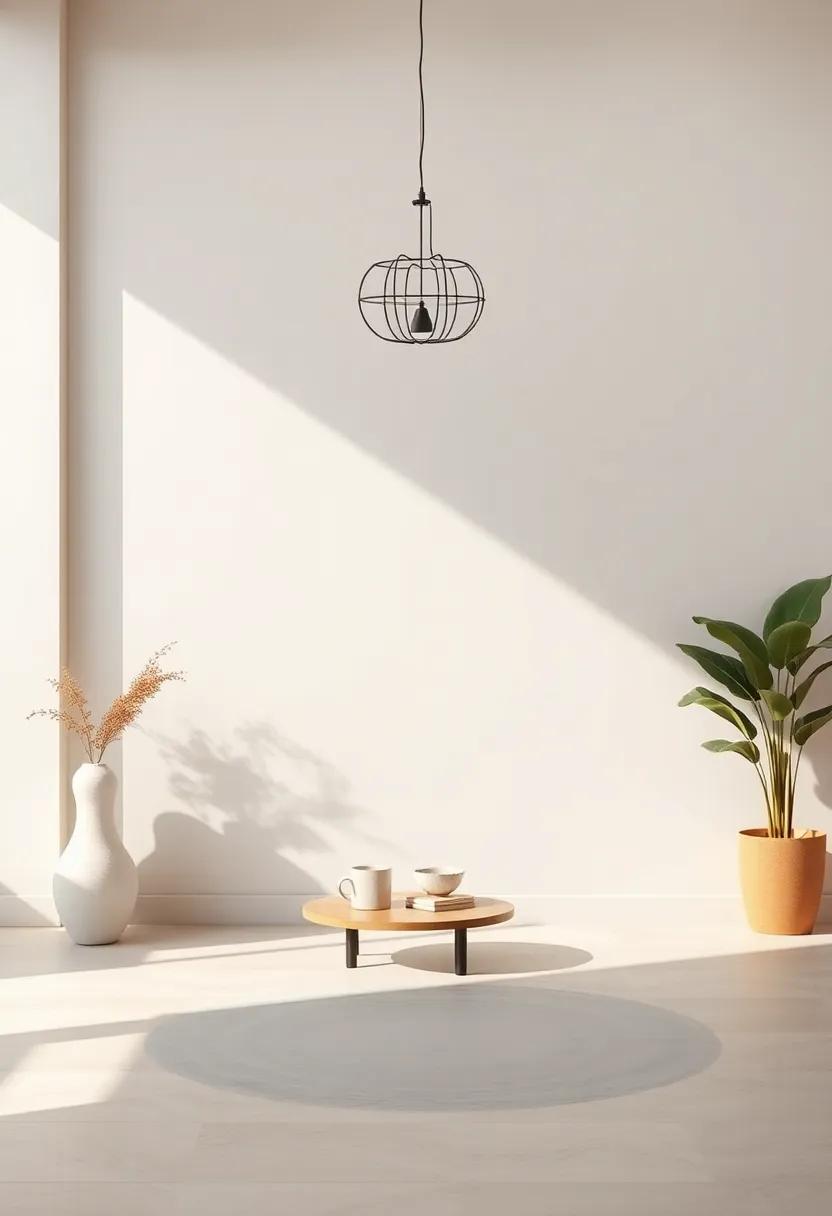In a world increasingly characterized by mass production and digital aesthetics, the allure of handcrafted artistry remains a poignant reminder of our cultural heritage. Enter the realm of hand-painted indian murals—a vibrant tapestry of tradition, storytelling, and skilled craftsmanship. These breathtaking creations not only adorn the walls of homes and public spaces but also serve as a reflection of India’s rich history and artistic diversity. Each mural, meticulously painted by talented artisans, whispers narratives of gods, nature, and daily life, inviting observers to pause and immerse themselves in a visual symphony of color and form. As we explore the transformative power of these timeless artworks, we uncover how they can breathe new life into any space, offering an enchanting blend of beauty and culture that resonates across generations.
Transforming Walls Into Canvas: The Allure of Hand-Painted Indian Murals
hand-painted Indian murals have a unique ability to transform ordinary walls into mesmerizing tapestries of art and culture. each brushstroke tells a story, reflecting the rich heritage and traditions of India. These murals are not merely decorative but serve as a medium to express the essence of local folklore and mythology.From intricate scenes of nature to grand depictions of historical events, the versatility of these artworks provides an array of choices that can seamlessly match any interior design theme. By incorporating these murals,your space can echo age-old stories,inviting an atmosphere of nostalgia and charm.
The allure of these murals lies in their distinctive characteristics:
- Vibrant Colors: Each mural is infused with vivid hues that can invigorate a dull space.
- Cultural Importance: Many designs are deeply rooted in regional traditions, offering a glimpse into India’s diverse heritage.
- Customization: Hand-painted murals can be tailored to fit specific spaces, making them unique to each environment.
To enhance your understanding of the different styles of hand-painted murals available,consider the following table that showcases some popular themes:
| Theme | Description |
|---|---|
| Customary Folk Art | Captures indigenous stories with vibrant,symbolic motifs. |
| Mythological Narratives | Brings to life epic tales from ancient scriptures. |
| Nature-inspired | focuses on flora and fauna, celebrating the beauty of the natural world. |
| Geometric Patterns | Utilizes symmetrical designs that add a modern twist. |
Echoes of Tradition: The Rich Heritage Behind Indian Mural Art
Indian mural art is a vibrant tapestry of culture, history, and spirituality, interwoven through generations of skilled artisans. Each stroke of paint carries stories of the past, reflecting the values, beliefs, and daily life of the communities from which they originate. From the intricate frescoes of Rajasthan to the lyrical narratives of kerala’s muralists, these works serve as visual chronicles that celebrate the diversity and unity of Indian heritage. Some prominent features that define this art form include:
- Symbolism: Each image is laden with meaning, often drawn from mythology and folklore.
- technique: Traditional methods involve natural dyes, cow dung, and hand-crafted tools, emphasizing eco-kind practices.
- Regional Styles: Variations exist across India, showcasing local tales and techniques that are unique to each area.
As you explore the beauty of these hand-painted murals, you will find that their timeless appeal extends beyond mere aesthetics. They act as a bridge between the past and the present, inviting a sense of connection to a rich lineage of artistry that enhances any space. whether in homes, galleries, or public spaces, these murals create an atmosphere filled with depth and character. Here’s a glimpse into some of the famous styles:
| Style | Region | Notable Features |
|---|---|---|
| Warli | Maharashtra | Geometric patterns, tribal motifs |
| Fresco | Rajasthan | Vibrant colors, royal themes |
| Pattachitra | Odisha | Intricate detailing, mythological narratives |
Vibrant Color Palettes: How Hand-Painted Murals Infuse Life Into Spaces
Hand-painted murals have the magical ability to transform an ordinary wall into a canvas of storytelling and emotion. Utilizing vibrant color palettes, these murals breathe life into any space, offering a unique blend of culture and artistry. Imagine a living room that boasts hues of deep indigo, vibrant saffron, and rich emerald—a palette that not only enhances the aesthetic appeal but also creates an atmosphere of warmth and comfort. Whether it’s a cozy café adorned with intricate floral designs or a child’s bedroom filled with whimsical characters, the infusion of colors through this traditional art form evokes a sense of joy and wonder that simply cannot be replicated by standard wallpaper or decals.
The charm of these murals lies not just in their breathtaking colors but also in their craftsmanship. Each stroke of paint is a testament to the skill and passion of the artist, which invites onlookers to engage with the art on a deeper level. Consider the following remarkable attributes of hand-painted murals:
- Customizability: Tailored to reflect personal taste and the character of the space.
- Durability: High-quality materials ensure longevity and resistance to fading.
- Cultural Heritage: Showcases traditional techniques and stories that enrich the environment.
Cultural Narratives: Discovering Stories Told Through Indian Murals
Indian murals serve as vibrant storytellers, encapsulating centuries of cultural heritage, mythology, and tradition within the intricate patterns and bold colors adorning their surfaces. Each brushstroke is a passage through time,revealing tales of deities,folktales,and the everyday lives of people from diverse regions.These works serve not only as decoration but also as a means of preserving and transmitting cultural narratives.Some of the common themes represented in Indian murals include:
- Mythological Epics: Stories from the Ramayana and Mahabharata.
- Natural Elements: Depictions of flora and fauna, symbolizing harmony with nature.
- Social Life: Everyday activities like farming, festivals, and rituals.
- Spiritual Lessons: Teachings and philosophies represented through sacred art.
The artistry behind these murals varies considerably across regions, reflecting local customs and beliefs. from the intricate Warli paintings of Maharashtra to the colorful frescoes of Rajasthan, each style offers a unique glimpse into the cultural milieu of its origin. Additionally, mural art frequently enough employs a rich palette of colors derived from natural pigments, which adds to the authenticity and appeal of these works.A closer examination reveals:
| Region | Style | Key Feature |
|---|---|---|
| Maharashtra | Warli | Simple stick figures; earthy tones |
| Rajasthan | Fresco | Vibrant colors; historical narratives |
| Kerala | mural Art | Religious themes; detailed human figures |
| Punjab | Phulkari | Floral patterns; embroidery techniques |
Architectural Harmony: Merging Murals with Modern Interior Design
Incorporating hand-painted Indian murals into modern interior design creates a unique synergy where traditional artistry meets contemporary aesthetics. These murals, characterized by their vibrant colors and intricate patterns, can serve as stunning focal points in a variety of spaces—from minimalist living rooms to eclectic cafes. By combining these cultural masterpieces with sleek furniture and modern decor, homeowners can achieve a balanced aesthetic that celebrates both heritage and innovation. Whether it’s a grand depiction of Indian mythology or a serene nature scene, these murals infuse character and depth into any environment.
To maximize the impact of hand-painted murals in your space,consider the following elements:
- Color Palette: Choose mural colors that complement your existing decor.
- Scale: Large murals can amplify a room’s height, while smaller ones can create cozy nooks.
- Lighting: highlight murals with strategically placed lighting to enhance their beauty.
| Mural Style | Best Suited For |
|---|---|
| Mythological Themes | Cultural and Traditional Spaces |
| Abstract Patterns | Modern and Contemporary Interiors |
| Nature Scenes | Relaxation Spaces like Bedrooms |
choosing the Right Space: Ideal Locations for Your Mural Masterpiece
When it comes to selecting a location for your mural, it is essential to consider both the ambiance of the space and its potential audience.ideally, you want a setting that draws attention while complementing the beauty of the mural itself. Some perfect locations include:
- Community Centers: Bring art and culture to neighborhoods.
- Cafes and Restaurants: Create a warm, inviting atmosphere for patrons.
- Schools: Inspire creativity in students and enhance educational spaces.
- Corporate Offices: Infuse vibrancy into work environments,promoting creativity.
- Parks and Public Spaces: Transform outdoor areas into cultural hubs.
Additionally, considering the architecture and underlying theme of the chosen location can enhance how well your mural resonates with viewers. Spaces with features such as high ceilings or natural light can enhance murals’ visibility and impact, while contrasting colors and materials could highlight your masterpiece beautifully. Below is a fast guide on how to match mural styles to various environments:
| Location | Recommended Mural Style |
|---|---|
| Community Center | Vibrant and Inclusive Designs |
| Cafe | Whimsical and Cozy Themes |
| School | Educational and Inspirational Motifs |
| Office | Modern and Abstract Concepts |
| Outdoor | Nature-Inspired and cultural Illustrations |
Designing with Nature: The Influence of Indian Themes in Murals
Embracing the artistry of nature, hand-painted Indian murals serve as a captivating bridge between tradition and contemporary design. Inspired by the rich tapestries of India’s vast landscapes, these murals often depict a harmonious blend of flora and fauna, capturing the essence of the environment. The intricate patterns and vibrant colors evoke a sense of serenity, inviting the outside world within, and promoting a deep appreciation for nature’s beauty. Through the use of various techniques, artists bring life to walls, transforming simple spaces into stunning narratives filled with stories of cultural significance.
To encapsulate the essence of Indian design elements in murals, artisans frequently incorporate symbols that resonate with nature’s themes. Key influences include:
- Lotus blooms symbolizing purity and beauty
- Peacocks representing grace and elegance
- trees and foliage embodying growth and fertility
- Wildlife scenes that depict the rich biodiversity of India
This successful integration of nature into indoor spaces not only enhances aesthetic appeal but also promotes a sense of peace and connection to the environment. Each mural thus becomes a timeless testament to the talent of Indian artisans, echoing a legacy that continues to inspire and innovate in the realm of artistic expression.
Artistic Techniques: Exploring Various methods Used in Mural Creation
Murals breathe life into a space, and the techniques behind these hand-painted masterpieces are as diverse as the stories they tell. Artists often begin with a preliminary sketch,mapping out the main elements,followed by layering techniques that add depth and dimension. Using acrylics, natural pigments, or traditional mineral colors, each layer contributes to the visual richness of the mural. The process also involves techniques such as sponging for texture, wet-on-wet for blending colors, and stencil work for intricate designs. Integrating traditional methods with modern twists can result in a unique aesthetic that attracts the eye and stirs the soul.
Color selection plays a pivotal role in the overall impact of the mural. An artist might utilize a color wheel to determine harmonious schemes, or they may choose to apply a monochromatic palette to evoke specific emotions. The layering of translucent washes can create an ethereal feel, while bold, opaque colors can appear vibrant and energetic. Understanding the psychological effects of colors on viewers is crucial, guiding artists in their choices. Below is a simple overview highlighting some popular mural techniques:
| Technique | description |
|---|---|
| Fresco | Applying pigments on freshly laid wet plaster, allowing colors to bond permanently. |
| Graffiti | Using spray paint or markers, often for bold urban expressions. |
| Trompe-l’œil | An optical illusion creating depth and three-dimensionality. |
| Graphic Style | Utilizing flat colors and strong outlines for a contemporary look. |
Celebrating Festivals: Expressing Emotion Through Seasonal Mural Themes
Throughout the year, various festivals inspire a kaleidoscope of emotions that can be beautifully captured through the art of hand-painted murals. Each party, whether it be diwali’s vibrant lights, Holi’s explosion of colors, or Eid’s serene elegance, conveys specific sentiments that resonate with our cultural heritage. These murals allow us to express feelings such as joy, reflectiveness, and unity in ways that are both visual and emotional. Artists carefully choose their palettes and motifs to evoke the spirit of the season, transforming walls into canvases that resonate with the rhythm of life and cultural narratives.
By integrating seasonal themes into mural designs, spaces can be tailored to reflect the essence of festivals, creating an atmosphere that invites participation and celebration. Consider thematic elements like:
- Traditional Symbols: Incorporating local symbols that hold significance during specific festivals.
- nature’s Colors: Utilizing colors representative of seasonal changes – think vibrant greens for spring or rich oranges for autumn.
- Community stories: Depicting local folklore or community activities associated with celebrations to foster connection.
these artistic expressions not only beautify spaces but also build bridges between generations by preserving cultural stories and traditions. The immersive experience of these murals invites individuals to ponder the deeper meanings of festivals,allowing each brushstroke to speak a global language of celebration and emotion.
Incorporating Personal Stories: Custom Murals That Reflect Your Journey
Imagine a mural that doesn’t just adorn your wall but tells your personal story—a narrative brought to life through vibrant colors and intricate designs. Incorporating elements from your life journey can transform a simple wall into a visual diary. Each brushstroke can evoke memories, emotions, and milestones that define who you are.consider themes like:
- Family Heritage: Celebrate your roots with traditional motifs that speak to your lineage.
- Personal Achievements: highlight significant accomplishments or experiences that shaped your path.
- Nature’s Influence: Include elements from your favorite landscapes or environments that resonate with your spirit.
By collaborating with a muralist skilled in the rich traditions of Indian art, you can ensure that every element is uniquely tailored to reflect your essence. A well-crafted mural captures not just eye but heart, turning walls into windows of self-expression. As you brainstorm ideas, consider ways to incorporate:
| Theme | Symbolism |
|---|---|
| growth | Trees and Flowers |
| Adventure | Journey lines |
| Community | Connected Patterns |
Let your mural be a conversation starter, a piece that welcomes guests into your world, inviting them to connect with your personal journey in a deeply profound way.
Elevating Ambiance: the Role of Murals in Creating Inviting Atmospheres
Murals have a unique ability to transform a plain wall into a gateway of expression, weaving stories that breathe life into any environment. The intricate designs and vibrant colors of hand-painted Indian murals can evoke a sense of warmth and tradition,turning an ordinary room into an inviting sanctuary. When strategically placed, these artistic creations not only enhance visual appeal but also foster emotional connections, making a space feel genuinely welcoming and alive. In homes, cafes, and public spaces alike, the presence of such art can spark conversations and inspire creativity among those who experience it.
The impact of a mural goes beyond aesthetics; it influences the overall mood of a space. Consider the effects of various themes and color palettes:
- Nature-inspired motifs can instill a sense of calm.
- Cultural depictions celebrate heritage and invite curiosity.
- Abstract designs encourage free-spirited dialog.
Each mural tells its story, capturing both the light and shadows of life, creating an immersive experience that resonates.A beautifully crafted mural can serve as a focal point, guiding the arrangement and design of surrounding furniture and décor.
Timeless Themes: Iconic Motifs Commonly Found in Indian Murals
When it comes to Indian murals, certain motifs transcend time and culture, weaving a narrative that is both spiritual and aesthetic.Notable among these are floral patterns, which symbolize beauty and the natural cycle of life.These intricate designs often feature lotus flowers, representing purity and transcendence, and are found in various regions, flowing seamlessly across walls to create a harmonious atmosphere. Additionally, the use of mythological figures like deities and celestial beings invokes a sense of divine presence, adding depth and stories of ancient wisdom that resonate with viewers on a personal level.
Another captivating aspect is the portrayal of nature and wildlife, which reflects the cultural reverence for the environment. Elephants, peacocks, and other animals are frequently depicted in vibrant colors, illustrating the connection between spirituality and the natural world. Furthermore, geometric patterns often interlace with these motifs, creating a rhythmic flow that guides the eye across the mural. This blending of organic and structured designs not only captivates the senses but also instills a sense of balance and tranquility within the space, transforming any room into a sanctuary.
From Concept to Creation: The Journey of a Hand-Painted Mural
Creating a hand-painted mural is a meticulous process that begins with a vision—a concept that is carefully crafted into a tangible piece of art.The artist often starts by gathering inspiration from mythology, nature, or cultural motifs, which are infused into the design. Sketches are made, often scaled to fit the intended wall, capturing the essence of the theme. Once the initial design is finalized, the artist selects a color palette that resonates with the story told in the mural, ensuring it harmonizes with the surrounding space. This preparation phase is crucial as it lays the foundation for the mural’s eventual impact on the environment.
As the artist implements the design, they employ a variety of techniques—from color blocking to fine detailing—transforming a blank wall into a vibrant canvas. The immersive experience unfolds layer by layer, requiring both precision and creativity. Tools such as brushes, spray paint, and sponges become extensions of the artist’s vision, each stroke breathing life into the artwork. As the mural evolves, the artist often steps back to assess the balance of elements, making adjustments to ensure that every detail contributes to the overarching narrative. This balance between meticulous planning and spontaneous creativity is what makes each hand-painted mural unique, offering an everlasting tribute to craftsmanship.
Collaboration with Artists: Finding the Right Muralist for Your Vision
Finding the ideal muralist to bring your vision to life involves more than simply choosing an artist; it’s about forging a partnership that embodies your ethos and aesthetic preferences. Start by identifying your goals and the specific emotions you want your mural to evoke. Engaging with potential muralists means viewing their portfolios with an eye for coherence to your vision. Look for artists who specialize in styles that resonate with you,whether it’s traditional Indian motifs or contemporary interpretations. consider reaching out through:
- Social media platforms: Explore Instagram and Pinterest to discover trending artists.
- Art shows and exhibitions: Attend local art events to see artists’ work in person.
- Word of mouth: Seek recommendations from friends, family, or industry professionals.
Once you’ve identified potential muralists,it’s crucial to establish a dialogue that ensures alignment. Discuss your vision openly and ask them for their input on enhancing your ideas. A collaborative spirit can lead to innovative results. Inquiries to consider include:
| Questions to Ask | Purpose |
|---|---|
| what inspires your work? | To gauge their artistic influences and approach. |
| Can you provide examples of similar projects? | To assess their experience and style fitting. |
| What is your process for mural creation? | To understand their workflow and collaboration methods. |
| how do you handle revisions? | To clarify their flexibility and communication style. |
Crafting a Unique Identity: How Murals Define Your Space
Murals have the power to breathe life into any environment, creating a distinctive character that sets the tone for your space. With their vibrant colors and intricate designs, hand-painted Indian murals transform bland walls into masterpieces that tell stories of culture, tradition, and artistic expression. Each stroke of paint embodies the skill and passion of the artist, making your space not just visually appealing, but also deeply personal.They serve as a visual narrative, capturing the essence of history and heritage, while simultaneously inviting contemporary aesthetics, ensuring that each wall exudes uniqueness.
Utilizing traditional techniques and themes, these murals can be tailored to fit any interior or exterior setting. Whether you desire a serene landscape, mythological scenes, or abstract designs, the possibilities are endless. Consider the following elements when choosing a mural for your space:
- Theme: Select a design that resonates with the emotions or values you want to convey.
- Color Palette: Choose colors that complement the existing decor or evoke a certain mood.
- Size: Assess the dimensions of your wall to ensure the mural’s scale enhances rather than overwhelms.
- Location: Think about where the mural will have the most impact—entryways, living areas, or even outdoor spaces.
Blending Styles: Fusing Traditional Murals with Contemporary Art
As the realms of traditional and contemporary art collide, the resulting patterns and narratives create a vibrant tapestry that rejuvenates any space. Hand-painted Indian murals,rich in storytelling and history,offer a stunning backdrop that can be seamlessly integrated with modern design elements. Imagine the striking contrast between the intricate details of a Mughal-inspired floral motif and the bold,abstract lines of contemporary artwork. This fusion not only highlights the beauty of both styles but also invites viewers to experience a dialogue between the old and the new. Key elements to consider when blending these styles include:
- Color Palette: Harmonize the colors in modern pieces with the tones found in traditional murals.
- Scale and Proportion: Ensure that the size of contemporary art complements the expansive nature of murals.
- Narrative Continuity: Choose modern works that echo the themes or stories present in the mural.
To emphasize the essence of this fusion, consider design placements where both styles can co-exist. As a notable example, pairing a large, vibrant tree of life mural with sleek, monochrome furniture can create a stunning visual juxtaposition. Additionally, arranging decorative elements like sculptures or modern light fixtures around these murals can aid in establishing a coherent aesthetic. The beauty lies in creating an engaging environment that resonates with varied artistic expressions.
| Element | Traditional Murals | Contemporary Art |
|---|---|---|
| Techniques | Hand-painted, detailed | Mixed media, digital |
| Themes | Mythology, nature | abstract concepts, social narratives |
| Textures | Rough, textured surfaces | Slick, smooth finishes |
Illuminating Spaces: the Impact of lighting on Mural Appreciation
The way a mural interacts with light is profoundly transformative, enhancing its colors, textures, and overall impact in your space. When strategically illuminated, hand-painted Indian murals become captivating focal points. Consider the following aspects of lighting that can elevate your mural’s presence:
- Accent Lighting: Using focused lights to highlight specific sections can draw attention to intricate details, making the artwork come alive.
- Natural Light: Positioning murals where they can bask in natural sunlight, softened by drapes or sheers, allows the colors to radiate and change throughout the day.
- Ambient Lighting: Soft, even lighting can blend the mural seamlessly into the environment, creating a harmonious visual flow.
Additionally, the choice of lighting color temperature plays a vital role in shaping the mood of the space. Warm light can add a cozy ambiance that complements the earthy tones and traditional art forms found in Indian murals. Look at the following table to understand how light temperature can affect mural perception:
| Light temperature | effect on mural |
|---|---|
| Warm (2700K-3000K) | Enhances warmth and richness of colors. |
| Neutral (3500K-4100K) | Provides balanced view, highlighting details without distortion. |
| Cool (5000K-6500K) | Brings out vibrant colors, adding a modern touch to traditional designs. |
Emphasizing Texture: The Beauty of Layered Artistic Techniques
Layered artistic techniques breathe life into any space, especially when it comes to hand-painted Indian murals.The intricate textures created through multiple layers of paint not only engage the eye but also evoke a sense of depth that draws viewers in. Each brushstroke contributes to a harmonious interplay of colors and patterns, where shadows play against light, giving a vivid, almost tactile quality to the artwork. The use of techniques such as scraping, glazing, and stenciling allows artists to create stunning visual narratives that reflect traditional themes and cultural stories, offering a window into India’s rich artistic heritage.
The organic feel of these murals can profoundly enhance the ambiance of a room, transforming blank walls into striking focal points. Some key benefits of embracing layered textural techniques in your spaces include:
- Visual Interest: Each layer adds complexity, making the mural captivating from any angle.
- Cultural Resonance: Reflects the deep-rooted traditions that can connect individuals to their heritage.
- Emotional Impact: The tactile quality of textured murals can evoke feelings of warmth and comfort.
Moreover,incorporating these techniques into your interior design can be approached through various styles,ranging from the modern minimalist to the exuberantly traditional. As an example, a curated selection of tabletop displays can enhance the overall aesthetic. Consider the following:
| Style | Complementary Decor |
|---|---|
| Modern Minimalist | Simple wooden furniture, neutral tones |
| Traditional Indian | Vintage textiles, brass accents |
| Eclectic | Diverse art pieces, bold colors |
Sustainable Choices: Eco-Friendly Materials for Mural Creation
Choosing eco-friendly materials for mural creation not only enhances the aesthetic appeal of your space but also contributes to a healthier planet. Artists today have access to a variety of sustainable options that reduce environmental impact without compromising quality.Some of these materials include:
- Natural Pigments: Sourced from minerals, plants, and earth, natural pigments are vibrant and safe for indoor use.
- Organic Paints: Free from harmful chemicals, organic paints offer rich colors with a lesser environmental footprint.
- Recycled Canvas: This alternative to traditional canvas is made from repurposed materials, reducing waste in the art production process.
- Eco-Friendly Adhesives: biodegradable and non-toxic adhesives ensure that even the sticking process aligns with sustainability.
When planning your mural project, consider the long-term benefits of utilizing sustainable choices. These materials not only foster a clean environment but also reflect a commitment to responsible artistry. A simple comparison of traditional versus eco-friendly choices can reveal extraordinary advantages:
| Aspect | Traditional Materials | Eco-Friendly Materials |
|---|---|---|
| Environmental Impact | High | Low |
| Toxicity | Frequently enough Harmful | Non-Toxic |
| Durability | varies | Often High |
| Cost | Generally Lower | Potentially Higher |
By embracing these sustainable materials, you can not only create stunning murals but also support a movement towards eco-conscious living. Making informed choices fosters a deeper connection to art, nature, and community, while still transforming your space with the timeless beauty of hand-painted Indian murals.
A Journey Through Colors: Understanding the Symbolism Behind Tones
Colors hold a profound significance in our lives, influencing emotions, perceptions, and even behaviors. The vibrant hues of hand-painted Indian murals serve not just as mere decorations but as a visual language rich in cultural symbolism. Each color tells a story; for example, red often signifies love and passion, while blue embodies calmness and tranquility. When integrated into spaces, these murals can transform an environment, setting the mood and atmosphere while inviting reflection on the deeper meanings behind each tone. The choice of colors can create harmony or juxtaposition, encouraging the viewer to feel and connect with the artwork on a personal level.
Along with emotional connectivity, the cultural context of colors in Indian art enriches the overall experience. Here’s a quick overview of some common colors found in these stunning murals and their meanings:
| Color | Symbolism |
|---|---|
| Yellow | Joy, warmth, and festivity |
| Green | Growth, fertility, and life |
| White | Purity, peace, and innocence |
| black | Strength, mystery, and the divine |
As you contemplate incorporating these artistic elements into your own space, consider how the rich tapestry of colors can evoke specific sentiments and transform your environment. Each mural is a testament to the craftsmanship and the culturally embedded meanings secure within its strokes and shades, inviting you to explore not only aesthetic beauty but also a deeper narrative.
Cultural Fusion: Combining Global Influences with Indian Mural Art
Indian mural art has long been a vibrant medium for storytelling,reflecting the country’s rich history and traditions. When combined with global influences, this art form takes on new dimensions, creating stunning visuals that resonate with contemporary aesthetics. Artists today are blending techniques and styles from various cultures,infusing traditional Indian motifs with elements from African tribal designs,japanese minimalism,and even modern street art. This unique synthesis not only enhances the narrative depth of murals but also fosters an engaging dialogue between cultures, making the artwork accessible and relatable to a global audience. The incorporation of vibrant colors, abstract shapes, and innovative patterns can transform any space into a lively conversation starter.
Integrating cultural fusion into mural installations offers homeowners an opportunity to personalize their spaces while celebrating diversity. Whether its a single accent wall or an entire room, these murals can evoke a sense of harmony that reflects the confluence of various artistic traditions. Consider the benefits of this approach:
- Unique Identity: Custom murals provide a distinctive look that sets your space apart.
- Cultural Appreciation: Showcasing a variety of artistic styles fosters an appreciation for different cultures.
- Dynamic Aesthetics: The combination of various influences creates lively, intricate visuals that captivate the eye.
To illustrate this fusion, here’s a simple table highlighting some popular global styles that can complement traditional Indian mural art:
| Global Style | Description |
|---|---|
| Japanese Minimalism | Focuses on simplicity and tranquility, creating a serene backdrop for intricate Indian patterns. |
| African Tribal | Bold geometric designs that enhance storytelling through vibrant colors and rhythmic patterns. |
| Contemporary Street Art | Brings an urban feel, merging graffiti elements with traditional themes to attract younger audiences. |
Art as Conversation: Using Murals to Spark Dialogue in Your Space
Murals transform walls into vibrant storytellers, inviting viewers to pause and engage.Hand-painted Indian murals, drawing from centuries of tradition, serve as the perfect catalyst for conversation. These stunning artworks can evoke emotions, spark debates, and foster connections among those who encounter them. By incorporating culturally rich imagery,they provide a shared space for diverse audiences to reflect on their interpretations,cultural resonances,or personal experiences. This dialogue can be deeply enriching, as individuals find common ground or discover the beauty in differing perspectives.
To effectively harness the conversational power of murals, consider the following elements that enhance their impact:
- Placement: Choose high-traffic areas where people naturally gather, encouraging spontaneous discussions.
- Theme: Select subjects that resonate with your community’s values, histories, or aspirations, inviting deeper exploration.
- Engagement: Include interactive components,such as QR codes leading to additional information or reflection questions.
Furthermore, creating a collaborative mural project can engage community members and strengthen bonds. Below is a simple overview of steps to initiate such a project:
| Step | Description |
|---|---|
| 1 | Gather ideas through community meetings. |
| 2 | Invite local artists to design the mural based on feedback. |
| 3 | Schedule painting days where community members can participate. |
| 4 | Unveil the mural and host a discussion event to reflect on the artwork. |
Inspiration from Nature: Embracing Organic Elements in Mural Design
Incorporating organic elements into mural design not only brings the beauty of nature indoors but also instills a sense of tranquility and harmony within a space. The colors, textures, and shapes found in natural landscapes can serve as a vibrant inspiration. Consider elements such as:
- Flowing forms: Mimic the curves of hills, rivers, and plant life.
- Natural color palettes: Utilize earthy tones that evoke the essence of forests, oceans, and skies.
- Textural contrasts: Integrate various textures to replicate the feel of bark, stone, and leaves.
Hand-painted Indian murals provide a rich source of inspiration, drawing from the intricate patterns and motifs that reflect the diverse flora and fauna of the region.Frequently enough, these designs incorporate local wildlife and botanical imagery, connecting cultural narratives to the natural world. Such murals can be categorized into different styles,including:
| Style | Description |
|---|---|
| Warli Art | Utilizes simple geometric shapes to depict everyday life and nature. |
| Pattachitra | Features detailed narratives with vibrant colors inspired by nature. |
| Madhubani | Highlights floral and animal motifs with intricate patterns and bold colors. |
Curation of Art: selecting Complementary Decor for Your Mural Space
When choosing decor to enhance the beauty of your hand-painted Indian mural, consider selecting pieces that resonate with the mural’s theme, colors, and spirit. Incorporating natural materials can create a harmonious connection between your art and the surroundings. For instance, using items like:
- Wooden furniture - Adds warmth and complements the intricate detailing of the mural.
- Textiles – Soft furnishings with traditional Indian patterns can echo the colors found in your mural.
- Terracotta pots - These can serve as excellent plant holders that not only bring life into the space but also align with the earthy tones frequently enough seen in indian art.
To further enhance the mural’s visual appeal, create a cohesive color palette throughout the room. This can be achieved by selecting decorative items that reflect the mural’s hues. Use a simple table to visualize how a color scheme can guide your decor choices:
| Mural color | Complementary Decor Color |
|---|---|
| Deep Red | Soft Cream |
| Emerald Green | Warm Brown |
| Radiant Yellow | Muted Gray |
These harmonizing colors will tie the entire look together, allowing the mural to take center stage while the decor supports its narrative. By carefully selecting complementary items and considering the overall aesthetic, you can create a stunning space that celebrates the timeless allure of hand-painted Indian murals.
To Conclude
in the dance of color and tradition, hand-painted Indian murals emerge as a captivating testament to artistry passed down through generations. Their ability to transform spaces is not merely found in the vibrancy of their pigments but in the narratives they weave—stories of culture, history, and the profound connection between people and their surroundings. As we conclude our exploration of these timeless masterpieces, we invite you to envision the possibilities they present. whether adorning the walls of a modern home or gracing the halls of a historic site, these murals offer more than aesthetic appeal; they enrich our environments and elevate our experiences within them. As you consider ways to elevate your own space, remember that each stroke of paint is a brush with history, each mural an invitation to celebrate the beauty of artistry that stands the test of time. Embrace the vibrant world of hand-painted Indian murals, and let your walls tell their own unique story.
As an Amazon Associate I earn from qualifying purchases.
 decorafit.com Design ideas for your home and patio
decorafit.com Design ideas for your home and patio
